Lost and Bound
A Universty of Iowa team uses medical technology to reveal secrets


A Universty of Iowa team uses medical technology to reveal secrets

Some of the most intricate and imaginative work at the University of Iowa Libraries takes place just out of sight: beneath the binding of a centuries-old book, away from campus at the Libraries Annex, or in the connections we forge across campus. And it’s not just the students, faculty, and researchers who use the Libraries’ resources to break new ground. Often, it’s library staff who surprise each other with the scale and impact of our work.
Two features in this issue of BINDINGS are about just this kind of hidden treasure. In “Lost and Bound” (page 10), you’ll read about the work of library staff on a multidisciplinary team from across campus who came together to illuminate centuries-old print. In “Collections Management, Writ Large” (page 31), we take you through the high-density collections facility that gives the Libraries room to grow in our campus spaces.
The staff of the Libraries has always been something special, and in this issue, you’ll also learn about some of their recent achievements. Earlier this year, the Medical Library Association (MLA) recognized Linda Walton (page 16), longtime associate university librarian, for her outstanding career. Several of our employees have been awarded campus-wide honors (page 22), and we gave scholarships to nine accomplished student library workers (page 6).
We’re always working to build upon our existing relationships with academic departments, whatever their subject area. One recent highlight was the designation of Lichtenberger Engineering Library as a Patent and Trademark Resource Center (PTRC) (page 28), a resource that will support Hawkeye ingenuity on campus and beyond. As ever, we’re proud to have a world-class gallery on site at the Main Library, and the enthusiasm and community engagement spurred by our spring 2023 exhibit, Out & About: Queer Life in Iowa City (page 36) was one bright spot among many.
We’re proud to be able to share all of this remarkable work with you. I hope you enjoy exploring this issue, reading about our work, and getting to know the brilliant staff and students that make it all possible. Thank you for being part of the Libraries community.
John Culshaw Jack B. King University Librarian
Meet the most recent winners of the Libraries' student employee scholarships
Changes are coming to the JMRBR in the Hardin Library for the Health Sciences that will provide researchers with more access to books and space for hosting classes and events.


Learn about the many accomplishments and more of our dedicated team members that work hard to serve library users throughout the university, Iowa City, and beyond.
The new designation provides individual inventors access to additional resources from federal agency.
The spring 2023 Main Library Galley exhibit used documents, photos, artifacts, and ephemera from local archives to help recount the history of some of the many LGBTQ+ people and organizations through an Iowa City lens.
A preview of the fall 2023 Main Library Gallery exhibition the shares the story of of Bill Sackter, an advocate for people with intellectual disabilities who was beloved in Iowa City and beyond.
A new initiative is working to preserve Hawkeye sports history, including the 1959 Rose Bowl, and make it accessible to all.
Cross-campus collaboration is using medical imaging to uncover secrets along the spine.


A look Inside the UI Libraries Annex, a remarkable facility that boasts towering shelves, millions of volumes, and a satellite—and that’s just the beginning.
Take a look at two items from the collection in Special Collections and Archives, which focus on the origins of Black filmmaking.
Aaron Schaefer shares thoughts about his recently completed his one-year term in the position and why he’s a strong supporter the Libraries and its vital resources and engagement efforts.
Paula Wiley, associate director of development for the UI Center for Advancement, reflects on her first year in the role.
FROM THE HARDWOOD TO PASADENA AND THE ASPHALT TRACK TO WRESTLING MATS, the University of Iowa Libraries are working to preserve Hawkeye sports history, including the 1959 Rose Bowl, and make it accessible to all through a film digitization project.
The UI Libraries Special Collections and Archives and Conservation and Collections Care departments have begun an initiative to digitize about 530 football, men’s and women’s basketball, wrestling, and track films that date from the 1930s through at least 1989.
The state of film degradation is dramatic, especially for the older material, and many don’t have much life left in them. Due to the nature of film, the products of degradation induce further deterioration. Degradation affects the plastic support, causing film to become acidic, to shrink, and to give off an
acetic acid with a vinegary odor, otherwise known as vinegar syndrome.
Projecting an original 16mm film can be risky, and eventually the originals will no longer be viewable, so digitization is critical. The digitization process helps create an exact and high-quality duplicate of the original, which can then be accessed online via the Iowa Digital Library.
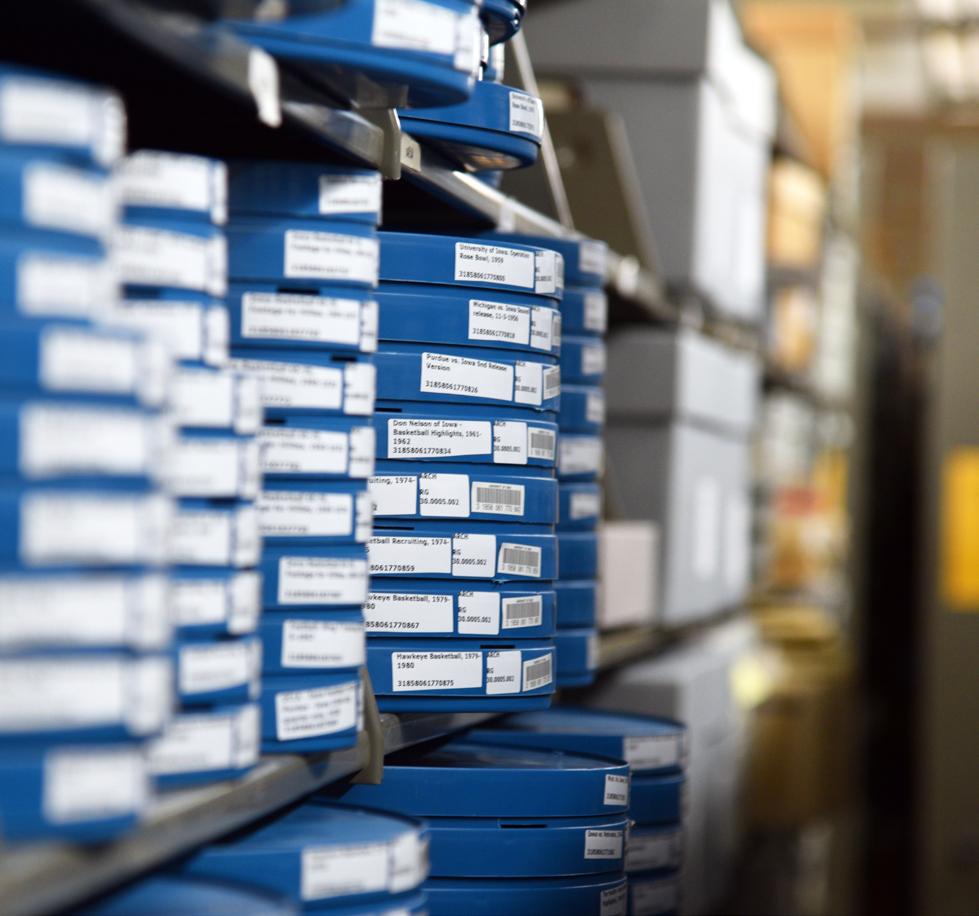
The initiative is one way for past, present, and future Hawkeye fans to easily relive memories such as watching the full game of the Hawkeyes prevailing over the California Golden Bears in the 1959 Rose Bowl. Currently, only highlights of the game are available, within the UI Sportsfilm production “The Evy Era of Iowa Football.”
Want to help? Those interested can reach out to Paula Wiley, associate director of development for the Libraries, at paula.wiley@foriowa.org.
The many wonderful collections already digitized at the UI Libraries are available here.
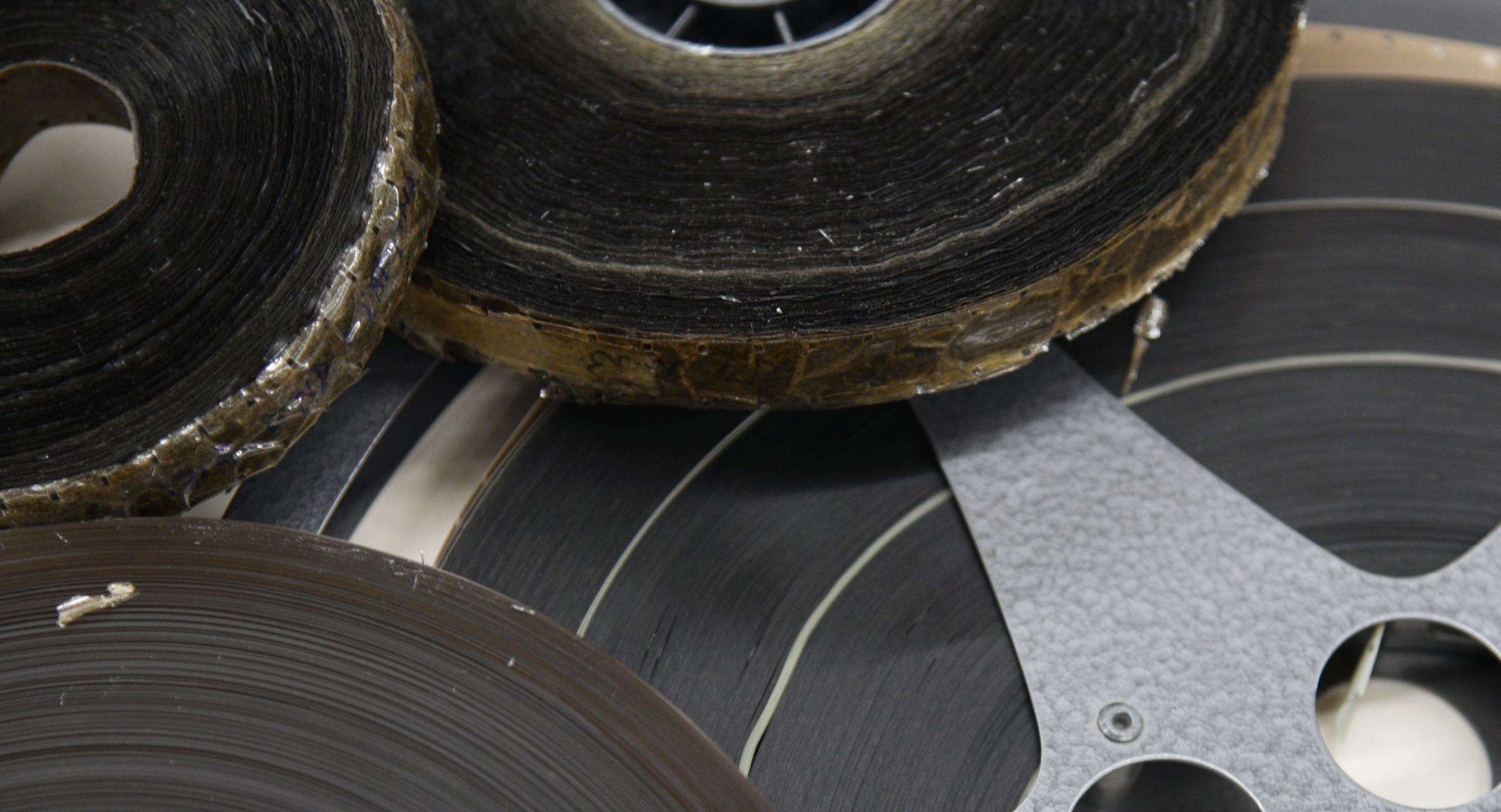
A UI Libraries team had an amazing time bringing the original manuscript of the Iowa Fight Song to Hawkeye Caucus Day in April 2023 at the state capitol. The manuscript was donated to the University Archives by its composer Meredith Willson. The day provided an opportunity for the Libraries, and a number of other areas across campus, to talk with Iowa legislators about the continuing commitment to statewide service.

Elizabeth (Lizzi) Ayers has been awarded the Judy and Mike Greer Scholarship in Memory of Mary E. Greer. She is an English major and French minor from Iowa City. Through a summer project maintaining 18thcentury Belgian political pamphlets in Conservation and Collections Care, Ayers discovered a love of antique materials—and found the inspiration to begin her own career in librarianship.
Cara Heuer is a third-year student from Ames, Iowa, studying human physiology. She received a UI Libraries Student Employee Scholarship for her work at the Sciences Library. During her time at the library, Heuer has come to appreciate the sense of connection and shared motivation that naturally grows within the space. She loves to help “set the tone” for each person’s library visit by making sure to greet them with positivity and enthusiasm.
Adam Holmes is studying mechanical engineering with minors in art and mathematics from Iowa City. Holmes was awarded a UI Libraries Student Employee Scholarship in connection with his work at the Lichtenberger Engineering Library. He was surprised to discover that library users often recognize him from the front desk when they cross paths elsewhere on campus; this made him realize that his work has an impact on each person’s experience.
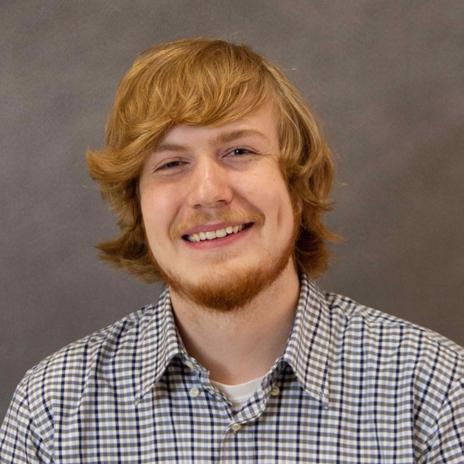
Abigail Kellis is studying English and creative writing and history, with a certificate in museum studies. She was awarded a Dale M. and Mary Gail Bentz Scholarship for her work in Circulation Services at the Main Library. The spirit of collaboration and mentorship she feels with her fellow library workers has inspired Kellis to seek a future career in libraries, museums, and archives.
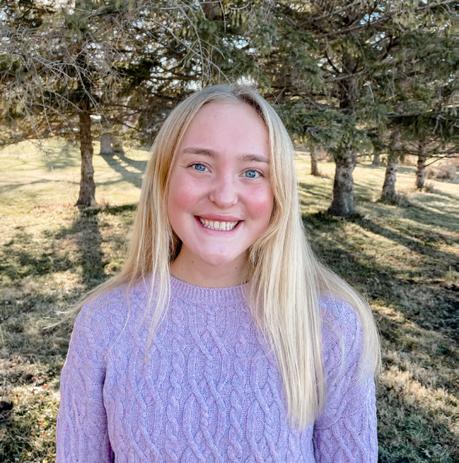

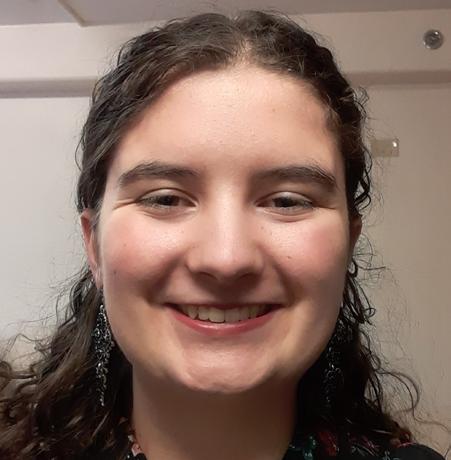
Ana Koch was selected for a Dale M. and Mary Gail Bentz Scholarship. Koch is a nursing student with a minor in music and works at the Pomerantz Business Library, where her experience at the main desk has bolstered her skill in communicating with patrons. Koch believes that her time spent in a peopleoriented role will strengthen her interpersonal skills in her future career as a healthcare provider.

We’re grateful every day for our student workers, whose contributions are foundational to the University of Iowa Libraries. They’re the vital engine behind everything we do, from the front desk at the Lichtenberger Engineering Library to the stacks at the Main Library. These dedicated students make time alongside their classes to create friendly, helpful environments where library users can focus and explore.
For the 2022-2023 academic year, nine student employees have been awarded scholarships in recognition of their work in the UI Libraries. We’re proud to celebrate each of them, as they share how their time in the Libraries has impacted their studies, their confidence, and their plans for the future.
Visit our website to learn more about each scholarship and its generous supporters.
Alyssa Lemay, a statistics and mathematics major from Sussex, Wisconsin, has been awarded a UI Libraries Student Employee Scholarship in connection with her work in Circulation Services at the Main Library. Lemay says that helping library users locate resources and navigate a vast collection has made her a flexible communicator and revealed her love of customer service—traits she looks forward to using in the future.
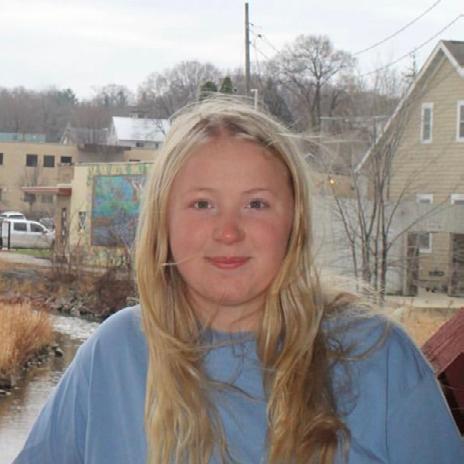
LilliAnna Scott is majoring in environmental policy and planning, with a certificate in sustainability. She received a Dale M. and Mary Gail Bentz Scholarship in recognition for her three years of work at the UI Libraries, in both the Main Library and the Art Library. As a first-generation student, Scott found that working at the Libraries gave her an immediate chance to familiarize herself with the academic resources available at a large research university.

Skylar Halley, a mechanical engineering student from Fairfield, Iowa, was awarded the Dale M. and Mary Gail Bentz Libraries Student Employee Scholarship. Halley works in the Lichtenberger Engineering Library, where his encounters with visitors and library co-workers exposed him to new fields of study within engineering. Meaningful discussions with one PhD student even encouraged him to reincorporate music into his life.
Emiline Heimos was awarded a UI Libraries Student Employee Scholarship for her work in the bookstacks at the Main Library. Originally from Labadie, Missouri, Heimos studies linguistics (teaching English as a second language) and translation for global literacy. She has come to love the quiet and calm of the stacks, finding a meditative sense of wellbeing among the books. This tranquility has served her in the classroom, where she’s noted a sense of increased confidence.
This award is given annually to two graduate students employed by the University Libraries. Students are selected based on an application essay and ratings from library supervisors. Both 2022-23 awardees are second-year students in the School of Library and Information Science.
Nancy Henke works as a student specialist in the Libraries' Scholarly Impact Department. Henke is originally from Boise, Idaho, and currently lives in Fort Collins, Colorado. Her coursework has ignited an interest in open access and the open academic resources movement.

Paige Wilkinson, originally from Woodward, Iowa, is planning to pursue her Master of Fine Arts at the UI Center for the Book. During her time in graduate school, she has discovered a love of conservation and collections care.
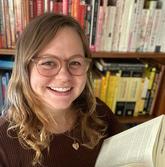
In March 2023, the UI Libraries were proud to host librarians and archivists from Big Ten peer institutions for a conference focused on the evolving field of digital preservation. This included sessions on the digitization of materials, emerging technologies and their applications, and metadata mapping. By bringing experts from across the country into one room, this meeting helped to cement collaboration among Big Ten institutions.
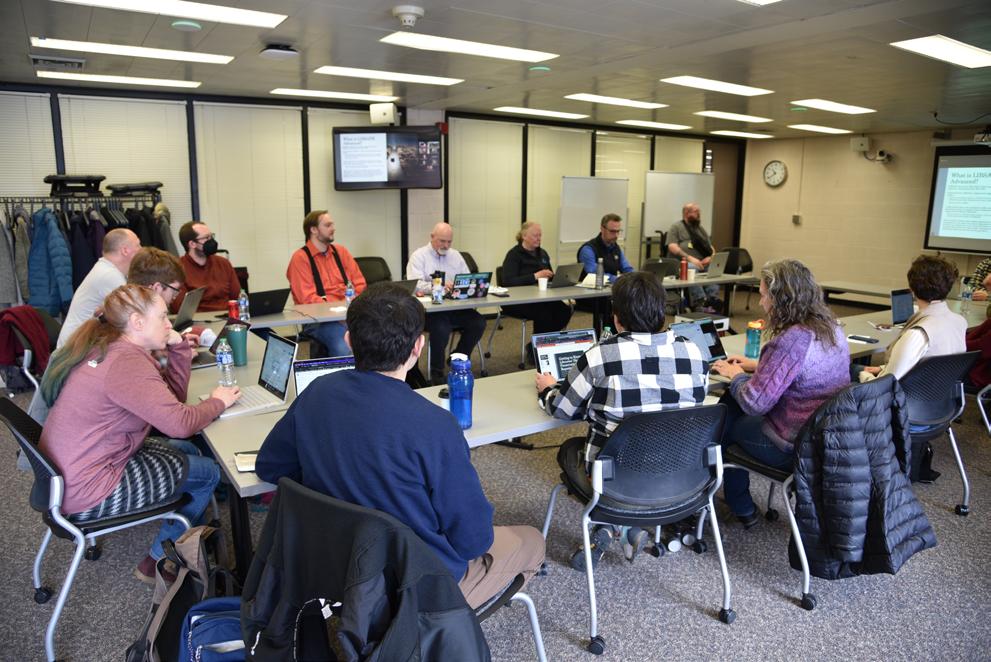
In March 2023, Conservation and Collections Care at the University of Iowa Libraries welcomed Yasmeen Khan as the featured speaker for its William Anthony Conservation Lecture, a celebrated event for the UI book arts community and beyond.
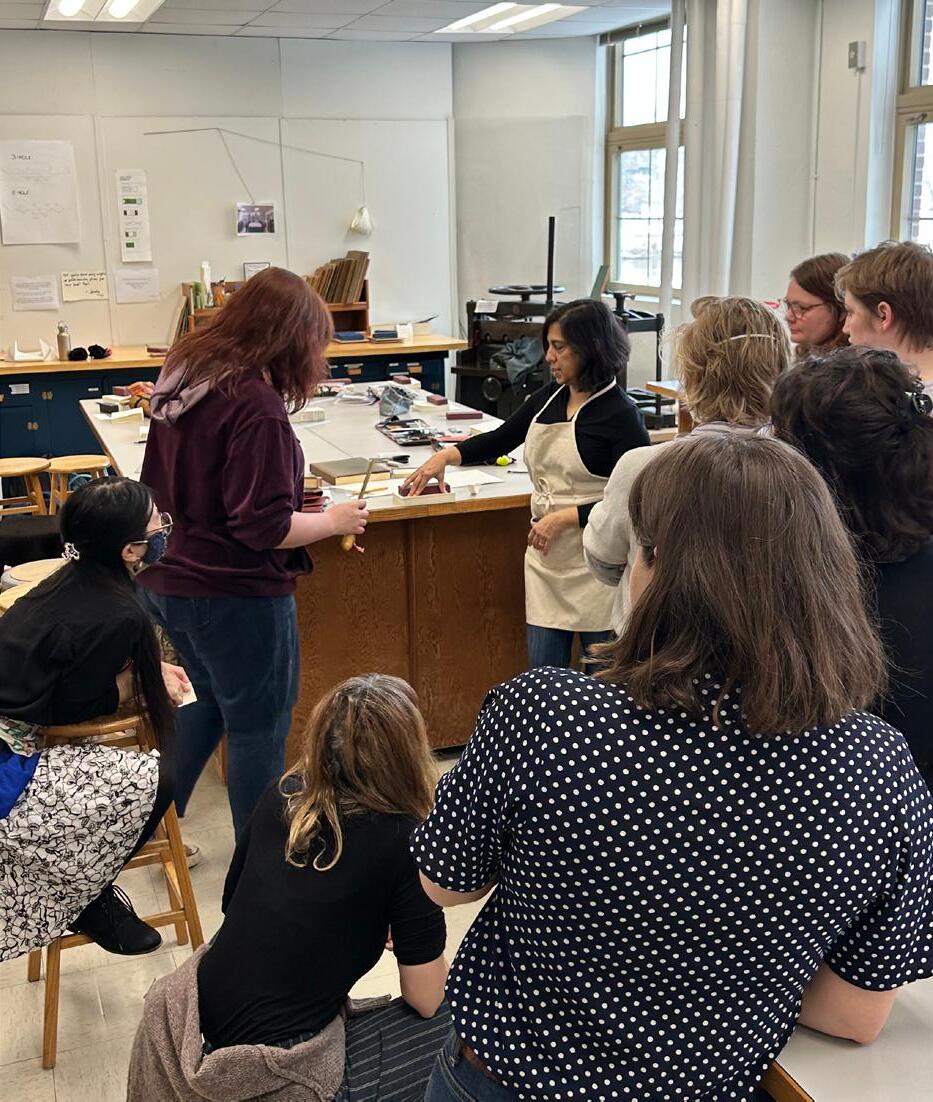
During the hybrid lecture, Khan reflected on her career in conservation and growing with the job. She started her work in the field in 1987 and currently serves as the head of paper conservation at the Library of Congress, where she has worked in various conservation roles since 1996. Her research is focused on the characterization of bookmaking and its associated crafts in the Middle East and South Asia, and the development of techniques for the preservation of illuminated manuscripts from the same geographic area.
According to Khan, a career takes time, not unlike finding a book. Her advice to people in the conservation field, or any field: take every opportunity to practice and apply.
The William Anthony Conservation Lecture Series is supported by the William Anthony Conservation Fund, established in 1989 by a generous gift from Julie Scott and James Fluck. It honors Anthony’s long-lasting legacy in the field and his service as the Libraries’ first conservator and first bookbinding instructor at the UI Center for the Book.
Learn more
WATCH Khan's lecture and learn more about her. READ about Anthony and his legacy.
“It’s better to have other people say no to you than to say no to yourself,” Khan shared with Suzanne Glémot, collections care assistant, before the lecture. “It’s a small world in book and paper, and even if you don’t think you’re fully qualified for the job yet, you should apply. The more you interview, the better you get at it. The more you learn and know about yourself, and it’s a chance to show your works and meet folks in this small enough community.”

An interdisciplinary group of UI researchers had just found new layers of history beneath the surface of 16th-century books using medical CT scanning technology. The find: recycled medieval binding fragments, called “binder’s waste,” that came from a Latin Bible dating to the 11th or 12th century.
Now, the group is sharing its discoveries, which confirm that the method is a cost- and timeeffective means to recover fragments hidden beneath bindings without damaging a valuable book. The full academic article, “Using computed tomography to recover hidden medieval fragments beneath early modern bindings, first results,” is available in Heritage Science
The UI Libraries is part of the Iowa Initiative for Scientific Imaging and Conservation of Cultural Artifacts (IISICCA). The group, composed of faculty and staff representing a range of disciplines, has been working since 2021 to learn more about the fragments found in the collections at Special Collections and Archives and the John Martin Rare Book Room in the Hardin Library for the Health Sciences.
The IISICCA’s book spines and fragments project seeks to find new methods to help uncover hidden collections in the UI Libraries and others around the country and the world. Other methods of scanning medieval books face limitations, so the team of UI researchers decided to try CT scanning to see the fragments concealed within their bindings.
The group utilized CT technologies at the University of Iowa Hospitals & Clinics and experimented using Special Collections’ copy of Conrad Gessner’s five-volume Historia Animalium. They chose this book, an early printed attempt at a holistic encyclopedia of the world’s animal kingdom, because its binding had already come undone and revealed evidence of binder’s waste.
Ensley; Giselle Simón, university conservator; Susan Walsh, technical director of the Small Animal Imaging Core (SAIC); and Katherine H. Tachau, professor emerita of history at the UI, reflected on their involvement with the project and the impact it has on the field of librarianship and beyond.
Q: What is your role in IISICCA?
Ensley: I’m one of the current co-directors of IISICCA and one of the project leads on the book spines and fragments project. While we often hear it said about some libraries that they “don’t have medieval manuscripts” in their collections, this is often not the case—the manuscripts typically are just hiding. Though other projects around the world have made these types of texts visible, we’re excited that this project makes it cheaper and more easily available for many institutions that lack the ability to purchase expensive equipment.
Simón: As university conservator, my role is to ensure that our collection materials are safe and cared for during the imaging process. It is all about preserving our collections. These materials are greatly affected by temperature and humidity, so when they get transported to a different location, I need to be aware of those factors. I’m also responsible for packing things for transport, making sure that transport is safe and items are insured, and overseeing their use during the imaging process.
continued on page 12
“It was a goose bumps moment,” says Eric Ensley, curator of rare books and maps in Special Collections and Archives at the University of Iowa Libraries.
Tachau: Because, like Eric, I come to this project with a background in medieval studies and both research and teaching focused on medieval books, I see my role as first and foremost assisting Eric and supporting Giselle. Since my first year of graduate school decades ago, when I was introduced to the study of medieval handwriting, I have loved working with actual manuscripts from the European Middle Ages in libraries both in the United States and abroad. Initially, my interest was primarily in transcribing and understanding the texts contained in manuscripts and rare books, but especially once I became involved with the UI Center for the Book, I increasingly came to appreciate more and more aspects of medieval and early modern books as handmade material objects.
Walsh: I’m co-director of IISICCA and my role is focused on the technical aspect of the projects. As the technical director of the SAIC, I have experience in the areas of project development, image acquisition, and image data analysis.
Q: What value do you think these IISICCA projects have to your field and beyond?
Ensley: I think they offer a variety of positive impacts. From my perspective as a curator interested in the Middle Ages, our project is among the first that offers a solution to some of the expenses associated with working to recover fragments. I think the second important point is that this sort of work shows what can happen when humanities, sciences, and information professionals work together—we each bring different expertise to the table and think about problems in new ways.
Simón: Conservators are interested in using imaging techniques to inform treatment decisions. If we know chemical makeup, we can make better decisions about what materials
we need to use in repairing an item. Imaging techniques also help conservators understand exactly what is causing damage or to determine the best long-term storage needs of an object, whether it be a book or a painting. It’s about knowing the facts about an object’s physicality to help make decisions. I’ll never be an expert in CT scanning, so collaboration with our science colleagues is critical.
Tachau: People have been writing and reading books for three or four thousand years, and most of the time we readers tend to think of a book’s text when we think of the information that the book contains. As material objects made by individual human beings, however, books give us much more knowledge. We were thrilled to see that technology, in this case CT scanning, is revealing there is a lot more information to be learned from the books themselves than merely what is written between its covers. Even if fragments found in books are not lost texts, they still offer glimpses of early forms of writing, clues to where the book was bound or who did the binding, and even hints of ownership.
Walsh: Having nonbiological samples to image allows a bit of creativity to be included within the scientific method. This creative step can span answering a simple question as to how to coordinate transportation of the materials with the curator’s oversight, to securing the sample while imaging and applying data analysis techniques to the images. Anytime the circle of collaboration is increased, the depth of understanding one’s own field of research deepens.
Q: What have you learned from your on-campus collaborators while working in IISICCA?
Ensley: The number one thing I’ve learned is that we should be asking each other for help
more often. Not only do we all have different technical expertise, but we often think about things differently. For example, it may come as a surprise, but when fragments are wrapped around a spine, they’re not flat. So how do we read a fragment that’s not flat? Luckily, one of our researchers immediately compared this to CT scanning a human eyeball—there the CT needs to read the surface of the eye, which is, of course, curved. Our team used software used to help CTs read these curved surfaces to help read our curved fragments.
Simón: It’s great to understand, even just a little, the vastness of types of research that go on here at the UI. I have loved learning about what my colleagues from across campus are doing and what they are passionate about.
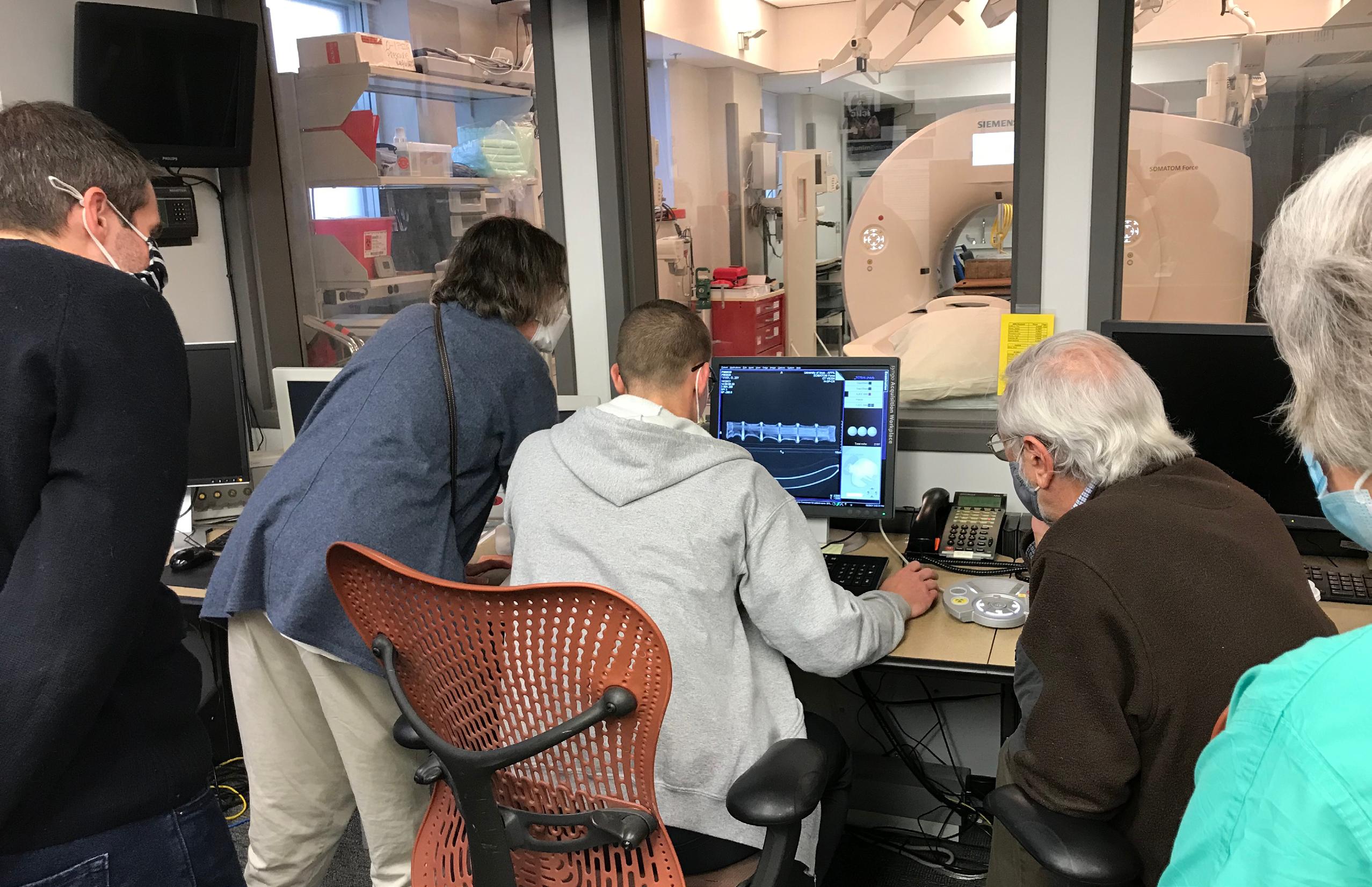
Tachau: It’s exciting to learn what technologies are available to bring to light evidence for historians to use that we could not otherwise discover; this evidence allows us to ask (and try to answer) new questions about the past.
Walsh: I remember the day we were using the human-sized CT scanner to scan the three manuscripts. Everyone was crowded around the control console of the CT scanner watching in real time as the data from the bindings was processed. The moment the first letter was visible to the eye and my IISICCA colleagues were able to see their hypothesis become reality was quite special.
continued on page 14
Ensley: We’ll be continuing to work together. I think this research is a good example of how libraries have a central role to play in “crossing the river” between the humanities and the sciences. In many ways, librarians sit at the center, with some background in scientific inquiry and some background in humanistic inquiry. Here, our collections and knowledge helped inflect the project and create research that will help other libraries across the world better understand their collections and what lies just below the surface.
Simón: The potential for further research of our artifacts using noninvasive techniques is at the core of how it could be of value going forward. As a conservator, this idea speaks to me. Scholars continue to dig deeper, so to speak, to understand the material culture of the book, and the need to investigate the physical object will always be somewhat of a conundrum for preservation. In a library, the book is meant to be used. How can we accommodate that use and also find hidden elements in more investigative ways without doing harm? I think we are on the right track.
Walsh: Taking the long view, having this collaboration provides many avenues of study for students. As this approach to understanding library materials is gaining ground worldwide, it will be a benefit for UI students spanning departments, which is invaluable.
The IISICCA brings together UI faculty, staff, and researchers from the UI Libraries; Center for the Book; College of Engineering; departments of Art History, Classics, History, Religious Studies; Iowa Institute for Biomedical Imaging; Small Animal Imaging Core; the Iowa Initiative for Artificial Intelligence; and the Stanley Museum of Art.
Iowa has hosted two international conferences on closely related topics regarding manuscripts: the 2016-18 Mellon-Sawyer seminar and the 2020 "More Than Meets the Eye" Conference.
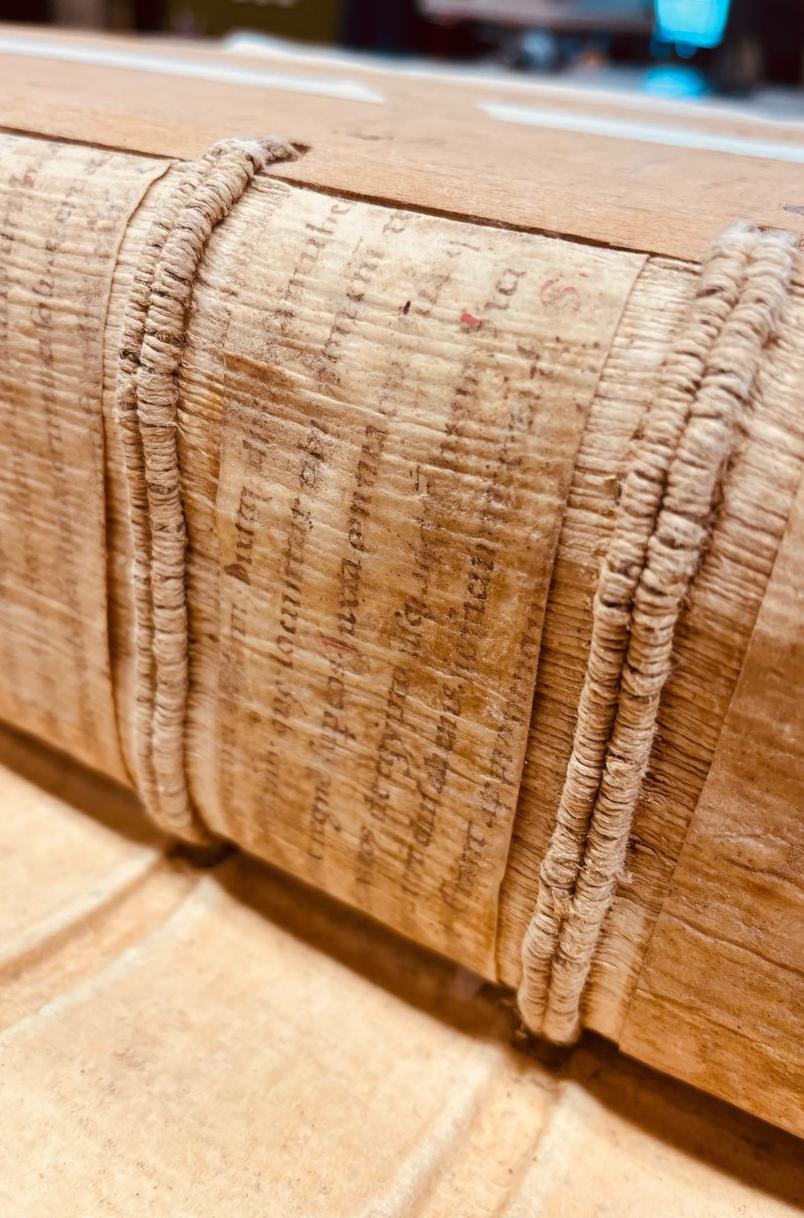
Changes are coming to the John Martin Rare Book Room (JMRBR) in the Hardin Library for the Health Sciences that will provide researchers with more access to books and space for hosting classes and events.
A new, separate reading room will be constructed in the area just outside of the current JMRBR as part of a larger project to renovate the fourth floor of the library. The current JMRBR will be converted to a shelving space, helping to maintain the security and preservation of all JMRBR materials. The project is expected to begin in June 2023, with completion anticipated during spring 2024.
Additional work on the fourth floor as part of the larger area remodel project is moving forward, with muchneeded updates being made to individual studies as well as the open study areas. To accommodate the change, print books published before 2010 have been moved to the Library Annex, where they can be easily and quickly retrieved.
The fourth-floor improvements are made possible by a generous grant from the Roy J. Carver Charitable Trust. The JMRBR improvements are made possible with support from the Friends of the UI Libraries.
Hardin Library is also undergoing a refresh in other areas, and remodeled restrooms are available on the third and fourth floors of the building near the elevators. In addition, work has started on the 24-hour study rooms and progress is being made on the first- and second-floor restrooms.
William Cowper’s The anatomy of humane bodies (1698) is one of the distinctive items in the JMRBR collection that will benefit from these improvements.
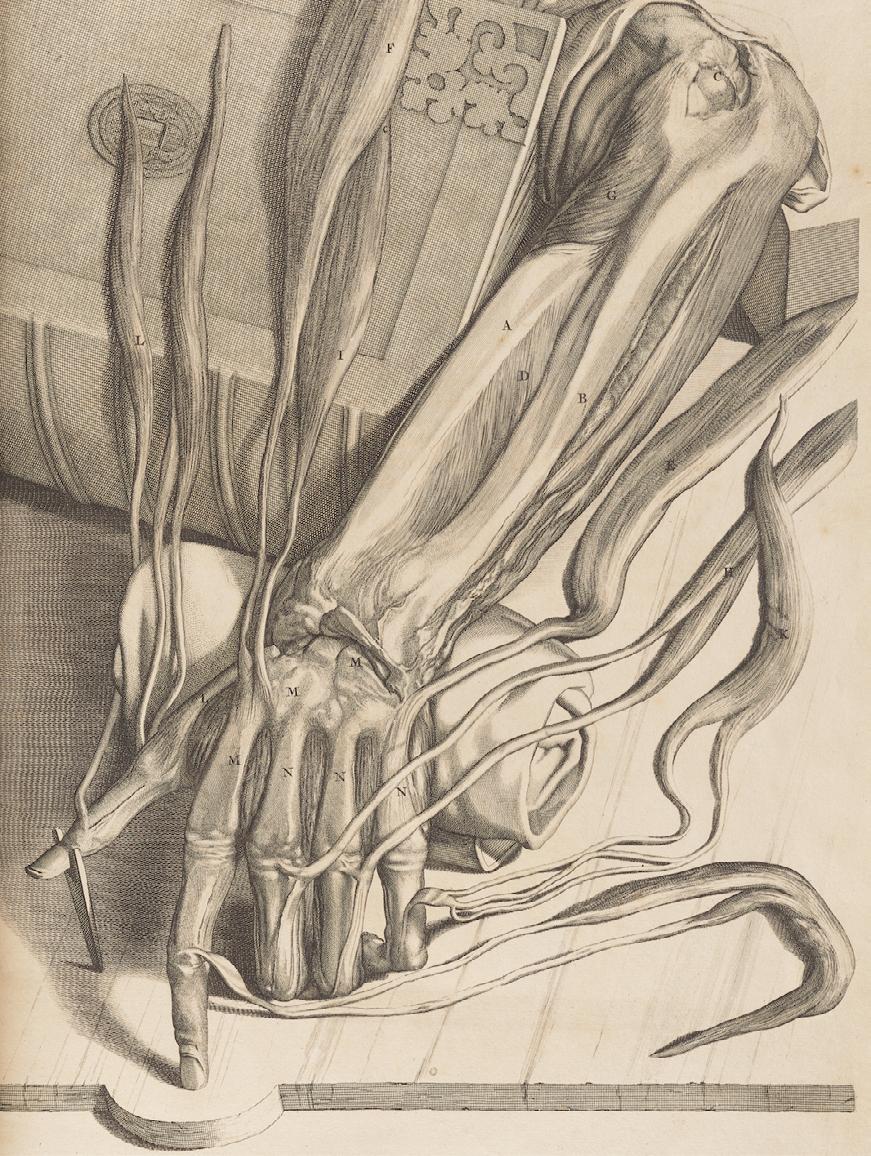
Linda Walton has been recognized with the 2023 Marcia C. Noyes Award, the highest distinction given by the Medical Library Association (MLA). This competitive national award is presented to a nominee with a longstanding and sustained record of excellence in medical librarianship.
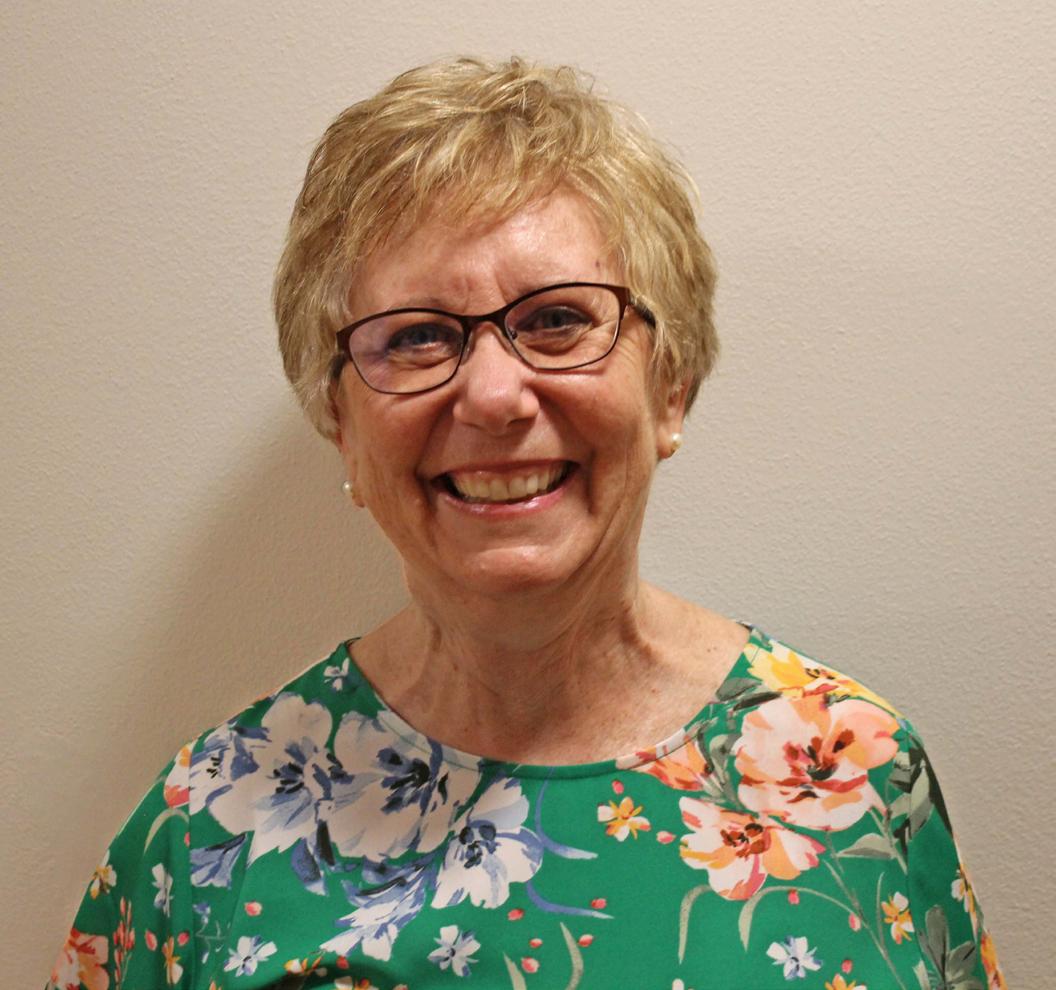
Walton’s nomination was supported by colleagues from throughout her distinguished 38-year career as a medical librarian. She has served 16 years at the University of Iowa Libraries and her primary nominator was Janna Lawrence, director of the Hardin Library for the Health Sciences. “A person of utmost practicality, most of Linda’s accomplishments have directly served the needs of health sciences librarians and those we serve,” wrote Lawrence in her nomination letter.
“It is a well-deserved distinction, and the UI Libraries are immensely proud and grateful for Linda’s continuing contributions—not only to us, but to the field of medical librarianship as a whole,” says John Culshaw, Jack B. King university librarian.
Walton’s nominators all emphasize her adaptability, humor, and commitment to problem-solving in an evolving space. These qualities have made her an indispensable contributor to the wider field of medical librarianship, according to Lawrence. By pairing her natural enthusiasm with pragmatism, Walton has garnered millions in grants and contract awards for the institutions she serves.
The criteria for the Marcia C. Noyes Award include utility in the profession, durability of influence on the field, comprehensiveness of achievements, and ethical propriety. Walton’s nominators all attested to her excellence in each category. In his letter of support, University of Arizona Associate Dean Gerald Perry wrote: “Linda has left an indelible mark on health sciences librarianship, and she has done so with a kind and generous heart, and an insightful sense of humor that is always compassionate.”
After earning her Master of Library Science from Indiana University in 1980, Walton began her career as a reference librarian at the Indiana State Library. Over the decades to come, she worked extensively as an associate director and consultant with the Network of the National Library of Medicine (NNLM) across three regions, and took her first roles in higher education at the University of Wisconsin-Madison and Northwestern University.
Walton joined the UI in 2006 as associate university librarian and director at the Hardin for the Health Sciences. In this role, she worked to advance the interests of Hardin and the UI Libraries by securing approximately $12 million in funding from the NNLM from 2016 to 2021; this funding was later renewed in full through 2026, totaling $24 million. She has repeatedly proven herself to be a nimble problem-solver in the face of unexpected setbacks, including helping the UI Libraries respond to the 2008 flood and serving on the Critical Incident Management Team that guided the Libraries’ response to COVID-19.
In 2018, Walton moved into a new role as associate university librarian for the UI Libraries system as a whole. In this position, she administered the Libraries’ annual collections budget of $16 million and supervised the work of nine directors. Her role in steering Libraries’ operations, particularly during the height of the pandemic, created a more efficient and communicative working environment. In January 2023, Walton transitioned to serving as the associate director of the NNLM for Region 6.
Throughout her long career in medical librarianship, Walton has consistently been entrusted with leadership roles in the NNLM and the MLA, where she has served as a member of the board of directors and as MLA president from 2014 to 2015.
Walton has presented at multiple nationwide conferences, secured dozens of grants, and authored or co-authored more than 20 publications. Her work in collections management has directly increased the accessibility of crucial medical information at the Hardin Library and beyond. In 2006, the MLA recognized her with the Estelle Brodman Award for Academic Librarian of the Year, a mid-career award for excellence in librarianship. In 2021, Walton was made a Fellow of the MLA, a rare designation offered for “outstanding contributions to health sciences librarianship and to the advancement of the purposes of MLA.” Now, she has received the highest honor the MLA bestows: the Marcia C. Noyes Award.
 BY NATALEE DAWSON
BY NATALEE DAWSON
Donna Brooks describes herself as “intrinsically motivated by possibility,” and she aims to ensure that her colleagues find that kind of motivation in their work, too. As program manager at the Digital Scholarship and Publishing Studio, she fosters creativity within her interdisciplinary team through project management and organizational development. The result is a collaborative environment in which all varieties of expertise are valued.
Brooks’ own diverse interests may factor into this creativity-first mindset. Her artistic pursuits include landscaping, making stained glass art, and carpentry—and she also has a Master of Fine Arts in nonfiction writing. Her team shares this adventurous spirit; according to Brooks, one of the Studio’s greatest strengths is that its staff is made up of creative professionals whose expertise, both professional and personal, spans many fields.
Brooks sees the Studio’s fundamental role as connective, offering support to the research and creative work of university students, faculty, and staff. A huge part of that work is fostering equity for everyone on campus regardless of their resources by offering free access to space, technology, and digital project development.
For more info...
The Digital Scholarship and Publishing Studio collaborates with students, faculty, and staff on the digital design and implementation of their research to encourage scholarly creativity, interdisciplinary research, and multiplatform circulation. The Studio also administers the graduate certificate in public digital humanities, runs a summer fellowship program, and offers a slate of short courses for graduate students and advanced undergraduates.
Willow Fuchs and Donna Brooks are two such standouts, bringing an impressive variety of skills—creativity, adaptability, and integrity—to their work. In this issue of BINDINGS, we’re taking an opportunity to amplify their accomplishments. Both exemplify the care and dedication that all our librarians bring to an institution where the exceptional is the rule.
Willow Fuchs knows that knowledge is power, especially when it comes to the field of business information. After all, every decision requires data, and the resources that gather and store that data are always evolving. She describes much of her own role as a kind of navigator, “steering users in the right direction” to find the information they need.
Her work as a business reference and instruction librarian at the Martin A. Pomerantz Business Library requires an analytical mindset and a wide knowledge base. Users who reach out to Fuchs for help are often looking for extremely specific pieces of information, the kind of data they’ve been unable to find on their own. It’s fulfilling these requests that she finds most satisfying. With “a little digging,” every search can lead to a game-changing discovery.
Fuchs takes cross-campus collaboration seriously, and often takes on responsibilities that reach beyond her own office: chairing and cochairing committees, collaborating with other libraries, and working alongside diversity, equity, accessibility, and inclusion groups to support environments that are “safe, equitable, and inclusive” across campus.
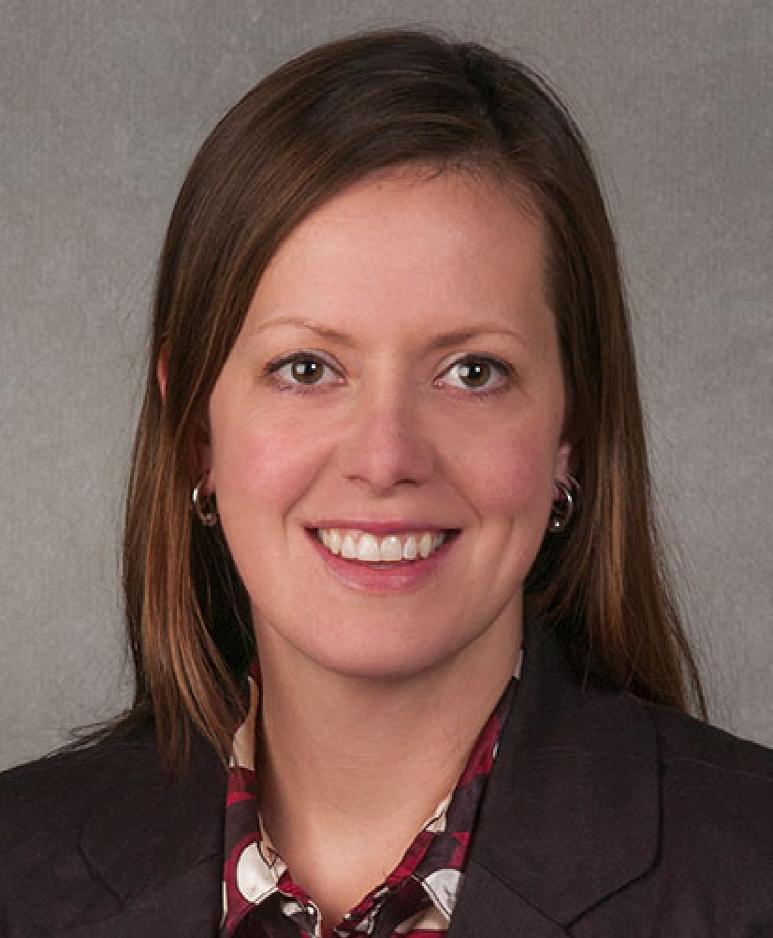
Business Library users can reserve study rooms and Bloomberg terminals within the BizHub’s bright, colorful space on the top floors of the Pappajohn Business Building. You can also tap into the team’s knowledge online by checking out the Libraries' YouTube channel, which hosts over 30 “how-to” videos to guide visitors through the use of databases and other informational resources.
Mahrya Burnett was named the 2022 recipient of the Arthur Benton University Librarian’s Award for Excellence for her impactful contributions to the future of Open Educational Resources (OERs). As a scholarly communications librarian at the University of Iowa Libraries, Burnett champions advancing OER efforts that allow students to use textbooks and other resources without paying hundreds of dollars per semester.
Burnett, a member of the Scholarly Impact Department, accepted the award during celebration in her honor where Jack B. King University Librarian John Culshaw expressed gratitude for Burnett’s contributions.
“Through her dedication and ingenuity, Mahrya has changed the landscape of higher education for the better,” says Culshaw. “By championing OERs, she has also proven herself to be a persistent advocate for equity and accessibility.”
In her role, Burnett has made a far-reaching impact on the field of OERs at the UI and beyond. She continues to advocate at the
state level for increased access to OERs since they can impact equity, removing unnecessary hurdles for students for whom textbook costs can be prohibitive.
To encourage and support the increased use of OERs, Burnett spearheaded the creation of OpenHawks, a grant project that helps UI faculty access and update OER resources for their courses. In the last four years, OpenHawks has funded more than 50 OER projects across a broad range of disciplines and saved students more than $1 million to date.
Ted Neal, professor of science education in the College of Education, shared he first met Burnett
about five years ago, when she approached him about designing an OER for his elementary science methods course.
“She helped me with design, content, resources, legality, formatting, and everything else needed for this resource,” says Neal. “This online text has grown into an invaluable piece for my course, having morphed into many new classes and sections.”
The Regents OER Grant Program is also a direct result of Burnett’s advocacy, and has brought together instructors from the UI with their peers at Iowa State University and the University of Northern Iowa. Her nominator, Giovanni Zimotti, director of Spanish language instruction, attested that Burnett’s contributions to OERs made it possible for him to collaborate more effectively with other academics.
By pooling resources, Zimotti and his colleagues have been able to evaluate and disseminate the best and most up-to-date materials for students
The Arthur Benton University Librarian’s Award for Excellence is awarded each year to a member of the UI Libraries’ professional staff who has demonstrated outstanding commitment and leadership in furthering its mission to serve the university community. In addition to formal recognition, the award includes a grant of $2,000 award for professional development that will support Burnett’s research projects or publications related to library services.
The late Dr. Arthur Benton, professor of psychology and neurology at the University of Iowa Hospitals & Clinics, established the endowment to make this annual award possible.
statewide, resulting in an OER textbook that is projected to save the UI student body an estimated $100,000 per academic year. In his nomination letter, Zimotti called Burnett “an incredible resource and inspiration for me and for all my colleagues.”
Each of Burnett’s letters of support emphasized her genuine enthusiasm for her work and the collegiality she brings to her professional partnerships. They also highlighted her proactive support of faculty, beginning with outreach and continuing with comprehensive guidance as they navigate new terrain.
Rachel Klevar of the Department of Spanish and Portuguese called Burnett’s assistance “indispensable” to her work, and noted that Burnett’s promotion of OERs “has made a tremendous impact on the future of learning.”

Carlette Washington-Hoagland was awarded the inaugural Inclusion, Diversity, Equity, Accessibility, and/or Social Justice (IDEAS) Staff Award. In his nomination letter, Associate University Librarian Paul Soderdahl described Washington-Hoagland’s work as “consistent, tireless, and pervasive.”
Washington-Hoagland’s recent accomplishments include her work as a leader in the UI’s Critical Mentoring and Student Support (Critical MASS) program, the Recruitment Ambassadors Program, and the Inclusive Education and Strategic Initiatives Group. She also served on the planning committee for the White Privilege Conference 20 and continues to serve on the board of the directors of CommUnity Crisis Services in Iowa City.
As part of being honored, Washington-Hoagland chose the book, The Four Agreements: A Practical Guide to Personal Freedom by Don Miguel Ruiz, to be added to the Libraries’ collection in her name.
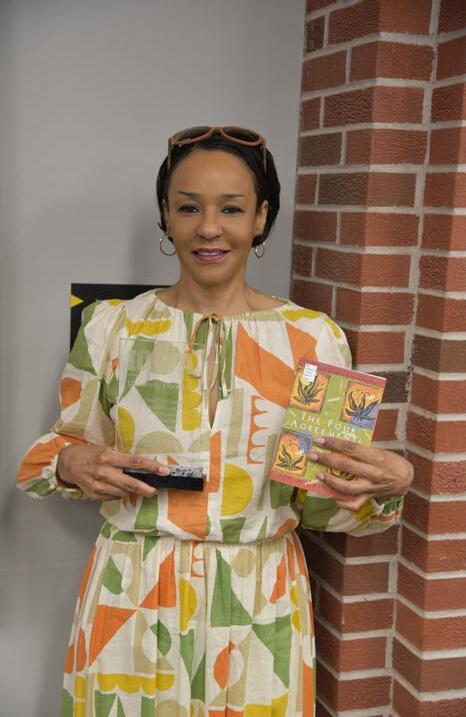
Sara J. Pinkham, UI Libraries exhibitions and engagement coordinator, was among the 18 staff across campus who received 2023 Staff Excellence Awards for their contributions to the university. Since starting her role in 2019, Pinkham has overseen operations and programming for the Main Library Gallery, an exhibition space that opened in 2016. Pinkham’s perspective and guidance have transformed the gallery into a respected teaching and research space for the campus and the wider community.
Pinkham is an integral player in the UI campus group known as GLAM (galleries, libraries, archives, museums). She also recently represented the Libraries internationally, attending the selective Open Palace Programme in the U.K.—an intensive program for professionals working with cultural heritage in an exhibition setting. Her attendance was funded with the help of two university awards: the Mary Jo Small Staff Fellowship Award from University Human Resources and an International Travel Award from International Programs and the Stanley-UI Foundation Support Organization. Pinkham’s work has made the gallery a beloved resource, one that connects experiential learning with original artifacts and collection materials.
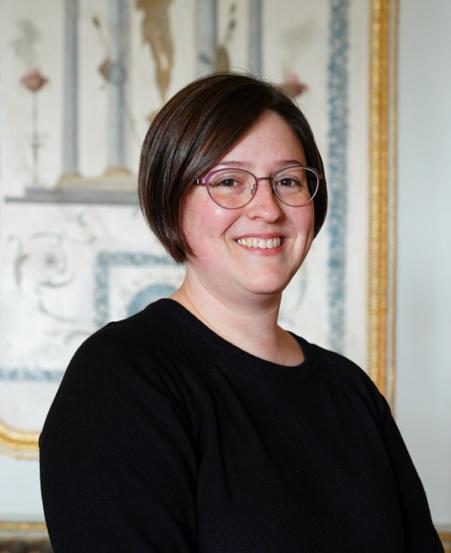
Jerome Kirby joined the UI Libraries as senior director of diversity, equity, accessibility, and inclusion in January 2023. He previously worked in UI Housing and Dining where he served as an assistant director for Residence Education. Kirby's work included focusing on a number of DEAI-related areas, including developing educational opportunities inclusive of multiple learning styles to stimulate departmental leadership growth in the social justice competency area. He also collaborated with the Residence Education leadership team to create equitable processes for evaluations, leave, recognition, and recruitment.
Kirby previously served as a community coordinator for Housing and Dining Services at Kansas State University where he oversaw aspects of student development; diversity, inclusion, and social justice initiatives; professional and team development; and recruitment.
Kirby received his Bachelor of Science in biology and Master of Education in educational leadership and policy studies from the University of Texas at Arlington. He is currently completing his PhD in higher education and student affairs at Iowa.
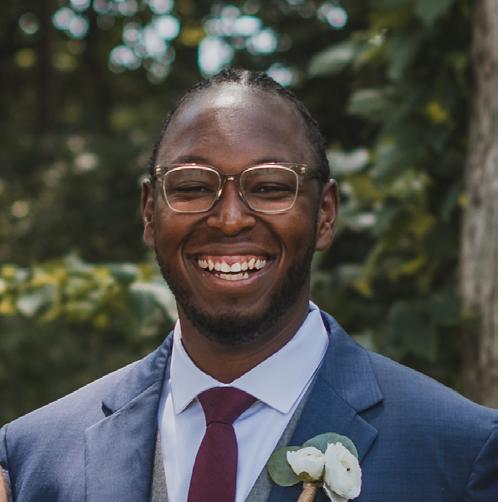
Kari Kozak, director of the Lichtenberger Engineering Library, has been awarded the 2023 Homer I. Bernhardt Distinguished Service Award from the Engineering Libraries Division (ELD) of the American Society for Engineering Education (ASEE).
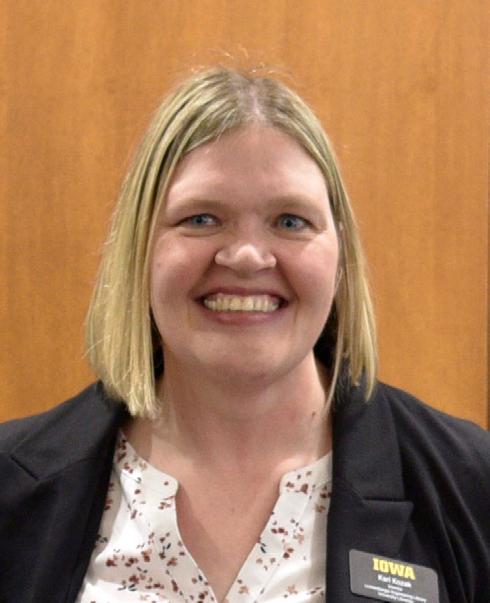
This award recognizes contributions to the advancement and development of excellence in engineering libraries. In Kozak’s nominating letter, she is described as “an exceptional and outstanding librarian.” Colleagues from across the University of Iowa wrote in enthusiastic support of Kozak’s nomination, calling Kozak “an invaluable resource” for the UI Libraries and the College of Engineering.
Kozak has held the role of director of the Lichtenberger Engineering Library since 2012, and has been a leader in professional organizations for scientific librarianship. She has served on advisory boards for ASME, IEEE, ASTM International, and Engineering Village. Kozak recently celebrated Lichtenberger Engineering Library’s designation as a Patent and Trademark Resource Center, an achievement that will foster innovation within the UI community for years to come.
Jim Hall of the Art Library was selected to receive the Student Supervisor of the Year Award for the entire UI campus. Hall was selected from among a record 106 nominations, drawn from 1,470 campus supervisors.
Hall’s surprise nomination was written by the students he supervises: Ruby Miller, Carson Hartzog, Makenna Boerhave, Adeline Reels, LilliAnna Scott, and Emily Edwards. Each student nominator wrote about Hall’s support and mentorship, stating that he “always allows us to use our knowledge and ideas to solve problems and create new methods of work,” and that he “constantly prioritizes [student employees’] mental health in the workplace.”
Hall received his award in May 2023 at the Career Impact Award event sponsored by the Pomerantz Career Center.

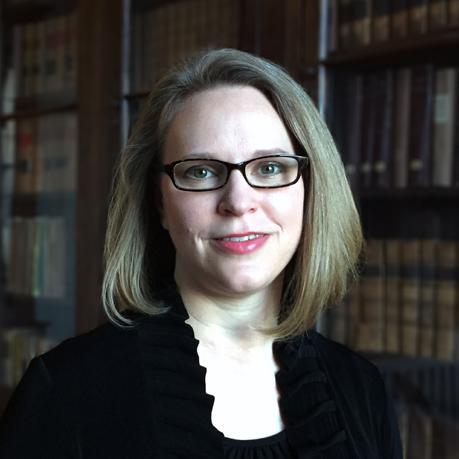
Katie Buehner, interim associate university librarian and director of the Rita Benton Music Library, was elected to serve as the assistant fiscal officer for the Music Library Association Board (MLA). Melissa Moll, music cataloging librarian, is the new assistant member management officer for the MLA, which is the professional association for music libraries and librarianship in the United States.
Mahrya Burnett, scholarly communications librarian, was elected to a two-year term on the Council of the Directory of Open Access Journals (DOAJ). The DOAJ’s mission is to increase the visibility, accessibility, reputation, usage and impact of quality, peer-reviewed, open access scholarly research journals globally, regardless of discipline, geography,
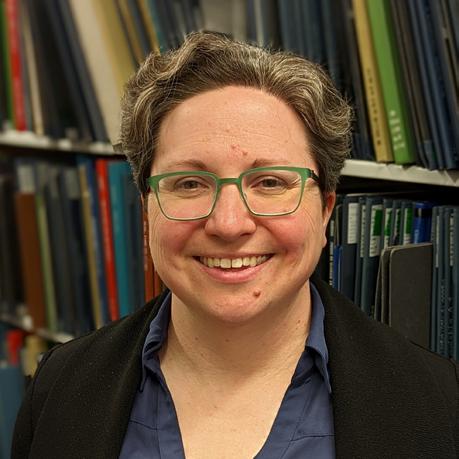
Jen DeBerg was named one of the 30 Revolutionary Leaders in 30 Years of the National Evidence-Based Practice Conference (EBP) sponsored by University of Iowa Hospitals & Clinics (UIHC) in April 2023. She was recognized for contributions that have shaped evidence-based practice, the conference, and most importantly, improved patient outcomes.
DeBerg’s specific achievements include co-authoring and consulting for both editions of the book Evidence-Based Practice in Action, consulting for numerous EBP initiatives at UIHC, and providing regular instruction for the Advanced Practice Institute.
Kate Orazem joined the UI Libraries in October 2022, serving as the Jean Lloyd-Jones and Michal Eynon-Lynch Iowa Women’s Archives Women in Politics Archivist. The position was generously funded by Jean Lloyd-Jones and her granddaughter, Michal Eynon-Lynch.
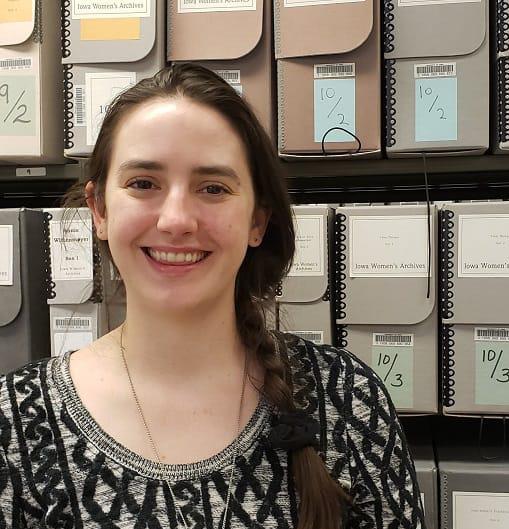
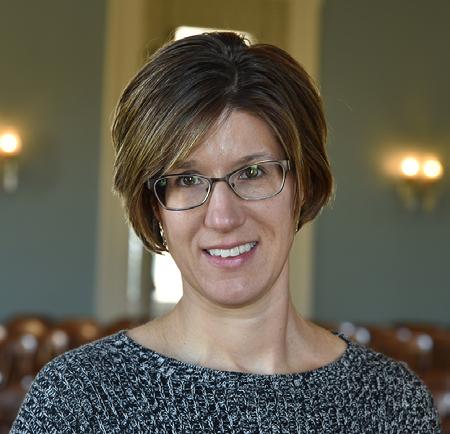
Orazem received her Master of Library and Information Science and Master of Arts in women's and gender studies from the University of Texas at Austin and her Bachelor of Arts in history from Yale University. She previously worked as the first archivist for the Rural Organizing Project in Oregon, a network of community activists across small-town and rural Oregon. Her work in the IWA focuses on collecting, processing, and bringing to light the stories of Iowa women and politics.
Orazem is helping update, maintain, and expand the Hard Won, Not Done—A Salute to Iowa Women Politicians online project.
VISIT the "Hard Won, Not Done" website to read move about Lloyd-Jones and the initative.
Sarah Keen recently completed her first academic year serving as university archivist in Special Collections and Archives in the University of Iowa Libraries and says it’s been very busy and full of new experiences.

She came to Iowa in August 2022 from upstate New York, where she served as Colgate University Libraries’ university archivist and head of Special Collections and University Archives. Previously, she was technical services archivist and American Association of Family and Consumer Sciences project archivist at Cornell University Library, and archivist for the Jane Harman Congressional Papers Project at Smith College. She earned her Master in Science Information from the University of Michigan and her Bachelor of Arts from Alma College.
Keen took some time to reflect on her first year at the UI Libraries.
How was your first academic year at the University of Iowa?
I'm thrilled at the warm welcome I've received and how interested the members of the campus community are in preserving and exploring the past and present of the UI.
Can you share a few of the highlights?
• Creating a pop-up exhibit with colleague Liz Riordan, lead outreach and instruction librarian, for the Hawkeye Distinguished Veterans Award event and attending the awards presentation.
• Meeting Hualing Nieh Engle, co-founder of the International Writing Program.
• Hosting an open house for the University High School Class of 1965 reunion.
• Collaborating with some students and faculty in the theatre arts to document the history and present works from that department.
Has anything really surprised you?
I would say it's more of an ever-evolving wonder of learning all the things going on at the UI, so frequently experiencing that sense of "wow." Recently, I've enjoyed learning more about the built environment on campus, the histories of various buildings, and how the campus was impacted by and recovered from the 2008 flood. Also, a Libraries colleague introduced me to the Iowa Raptor Project and
their work in raising awareness about birds of prey and conserving their populations.
What do you expect to be the collecting priorities for Special Collections and Archives over the coming years?
Broadly we will focus on documenting historically underrepresented aspects of the university community, and we will be doing some assessment work over the next couple years to gather more information on what those areas might be. We will be keeping in mind the university's bicentennial coming up in 2047 and how we can help the community share stories that give a fuller appreciation of our history.
What do you enjoy about being an archivist?
I enjoy learning about people’s lives and their experiences as individuals and with the organizations they create. It’s been fascinating learning about the university, its complex history, and its wide range of activities while collaborating with colleagues across campus.
One last question. What do you enjoy doing when you’re not digging through the archives?
I love rowing, hiking, and listening to music. I’m also a Red Sox fan and enjoy reading mystery books and watching mystery/detective shows. It has been 20 years since I last lived in the Midwest, so I look forward to continue getting reacquainted with the region.
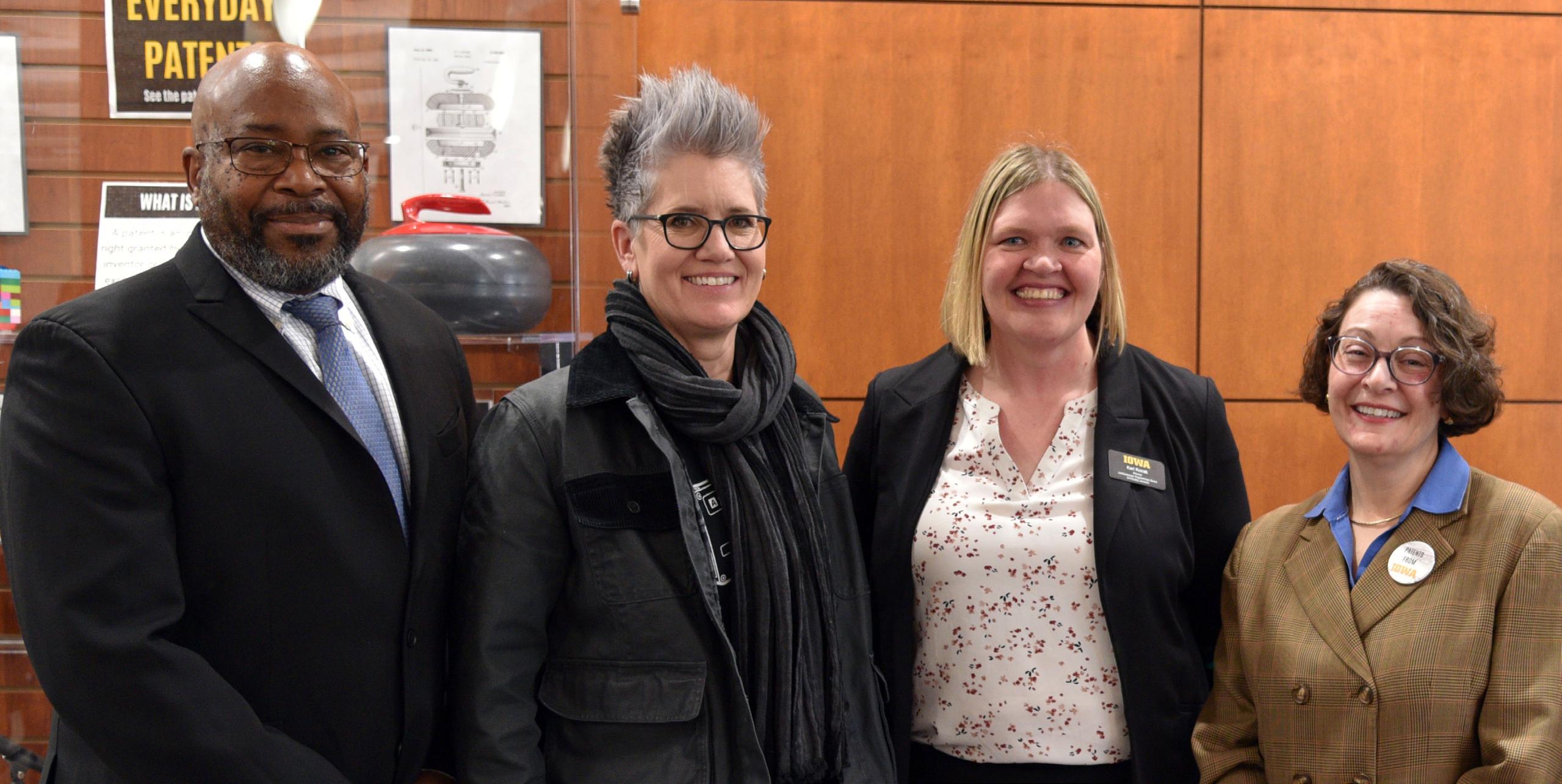
Initiative provides individual inventors access to additional resources from federal agency.
The University of Iowa Lichtenberger Engineering Library is now part of a select group of higher education institutions across the country—and only one in Iowa—to be designated a Patent and Trademark Resource Center (PTRC) by the U.S. Patent and Trademark Office (USPTO).
The PTRC is a resource for those with personally-owned inventions, such as student inventors and inventors from the community. It offers individuals from the university and throughout the state the ability to tap into the rich services provided by the USPTO’s vast networks of experts on intellectual property, which includes patents, trademarks, copyrights, and trade secrets. It also serves as a resource for University of Iowa Research Foundation (UIRF) staff as they work to protect faculty inventions owned by the university.
“The Lichtenberger Engineering Library has an abundance of experience promoting and delivering information and instruction services to the campus community and public, which is an essential element of the mission of the UI Libraries and university,” says John Culshaw, Jack B. King university librarian. “We’re very pleased to now have this opportunity for our skilled and dedicated librarians to continue collaborating to serve individuals looking to develop something impactful.”
Robert Berry, manager of the Patent and Trademark Resource Center Program, U.S. Patent and Trademark Office, visited campus to mark the library's designation as a PTRC. “We congratulate the Lichtenberger Engineering Library for undertaking this initiative," he said in his remarks. "The USPTO looks forward to working together to extend these important opportunities to as many individuals as possible.
The Lichtenberger Engineering Library offers a number of ways to learn more
about intellectual property and how to access patent records, including one-onone assistance, trainings, and workshops. It also collaborates with a number of campus partners such as the UIRF, which is part of the Office of the Vice President for Research; College of Engineering; John Pappajohn Entrepreneurial Center (Iowa JPEC); Pomerantz Business Library; and others.
Some notable individual patents held by alumni include:
US 2370990 (Tumbling Device) invented by George Nissen (BSC ’37)—Inventor of the trampoline, which he built in his garage in 1936.
US 1814357A (Acoustic Device for Sound Pick-up) invented by Harry F. Olson (BE ‘24, MS ‘25, PHD physics ‘28, EE ‘32)—A pioneer and leading authority in acoustics and electronic sound recording, Olson developed magnetic tape recorders for sound and television, the electronic music synthesizer, and underwater sound equipment.
The Lichtenberger Engineering Library also maintains an active instructional schedule, which includes on-campus lectures and classes covering intellectual property topics as a part of its information literacy program. These sessions are available as for-credit classroom work as well as open to the public.
The UIRF works to obtain intellectual property protection on innovations created by researchers through their work at the university and partners with industry for the commercial development of new products
continued on page 30
and services. While the UIRF manages patent protection for university-owned inventions, until now there has been no resource on campus for those with personally owned inventions. In addition, access to patent records can serve as an asset for university faculty conducting basic research—often scientific discoveries, especially those from industry, end up in published patent applications even if they are never published in traditional academic journals.
contact Kari Kozak at kari-kozak@uiowa.edu
“UIRF is particularly excited that this resource is now available for our faculty start-up companies,” says Marie Kerbeshian, assistant vice president and executive director for the UIRF. “As these companies create their own intellectual property independent of the university, they are now able to seek advice that will help them develop a strong intellectual property portfolio.”
Please note, the Lichtenberger Engineering Library is not a legal entity and a licensed lawyer should be consulted if you need legal assistance.

GUIDE Basics, search, citations, trademarks and more FOR MORE INFORMATION, including educational opportunities and potential partnerships,
 BY NATALEE DAWSON
BY NATALEE DAWSON
The University of Iowa Libraries Annex sits on the outskirts of Iowa City, tucked between warehouses and against train tracks. Inside the 60,000-square-foot facility, long aisles extend into darkness—but when the motion-activated lights click on, they illuminate 22-foot shelves stacked floor-to-ceiling with trays of materials. The effect is kaleidoscopic, books of every color neatly in place.
This impressive space currently stores about 1.8 million volumes—not including thousands of Special Collections and Archives materials—but has capacity for up to 4.8 million. It’s the only facility of its kind in the state, and a critical component of the UI Libraries’ strategy, streamlining management, preservation, and access to physical book collections. Items from the UI Libraries can end up in the Annex for multiple reasons. Age and the rate of circulation are the most common deciding factors, but some materials also are ill-suited for the bookstacks due to their size or shape; others require the particular atmospheric conditions of the facility. Materials in the Annex are organized by size rather
than the classification numbers used in the stacks. A separate room for cold storage contains dozens of delicate film reels, kept at an optimal chill by an HVAC system with air conditioner and dehumidifier units.
Library Annex Coordinator Maggie
Halterman-Dess and Library Annex Assistant Madde Hoberg had no trouble identifying their favorite item stored at the Annex: an instrument called a plasma detection package. It’s a few feet tall, covered in solar panels, and has been to space twice. It was transferred from the Department of Physics and Astronomy in 2013, becoming part of the Space Exploration Artifacts Collection in the UI Libraries’ Special Collections
This remarkable facility boasts towering shelves, millions of volumes, and a satellite— and that’s just the beginning.
and Archives. It played a significant role in the history of space exploration, becoming the first object to be picked up and maneuvered by the remote manipulator arm of a shuttle. Though the Annex is a repository of physical items, it has played a key role in the modernization of the UI Libraries. One beneficiary has been the Pomerantz Business Library, which is located in the BizHub at the Tippie College of Business. It’s been able to keep pace with a changing industry landscape by moving the contents of its former stacks to the Annex. Students and faculty can still request any book from the collection or the UI Libraries as a whole, but their physical space on campus has been transformed. In place of bookstacks, the BizHub is now able to host collaborative workspaces, a tutoring center, Bloomberg terminals, and a café.

“The UI Libraries Annex is an important resource for the preservation of materials,” says Jack B. King University Librarian John Culshaw. “It not only allows us to be discerning about which items remain in the on-campus bookstacks, but it also opens up possibilities for the use of space, which is always a consideration for us.”
One of the most promising—and daunting— projects for libraries worldwide is the digitization of vast collections. A team from the UI Libraries has been working alongside the Big Ten Academic Alliance and other peer institutions to send collections for digitization in partnership with Google Books.
The Annex plays a crucial role in this partnership, storing the physical copies of books from the UI Libraries after they have been digitized. This allows libraries to design spaces that keep up with technological progress. It also simplifies the discovery of electronic copies, many of which are instantly accessible to borrowers. The Google Books Project also serves a larger goal: the creation of a more connected and collaborative library landscape.
“As library collections include more born-digital content, there is less need to have immediate access to material on campus,” says HaltermanDess. “The Annex fits into a larger library ecosystem of distributed storage and retention agreements, ensuring that items are committed for safekeeping and fast fulfillment of patron needs on a more regional basis, rather than every library needing to attempt to collect everything.”
The current Annex first opened in 2016, replacing a temporary storage space first used in a significant stacks-reorganization project necessitated by the flood of 2008. This first
continued on page 34
iteration was a standard-issue warehouse, effective as a stopgap measure but lacking the intentionality of its successor. Still, UI Libraries staff found that the first Annex met a need that persisted even under ordinary circumstances. One of the Annex’s primary benefits was that it created space for books that hadn’t circulated in years but still had something to offer.
Today’s UI Libraries Annex is a cavernous space with a controlled climate: always 65 degrees Fahrenheit, always 50% humidity. Workers step in from the summer heat and don sweaters. They navigate the aisles in a cherry picker, a piece of industrial equipment that requires operators to wear a full-body harness in case of falls. Full-time staff need
training in the operation of heavy machinery. It’s a unique professional environment, and each day’s to-do list requires some improvisation.
“Flexibility is a big must for work at the Annex,” says Hoberg. “We often have to make do with what we have, come up with new shelving solutions for unique materials, and so on. It’s definitely not your ‘typical’ library job.”
Though faculty members and researchers sometimes ask to visit the facility in person, scans are also available. Halterman-Dess and Hoberg take pride in their ability to hunt down esoteric knowledge upon request. They work directly with borrowers to discern what kind of
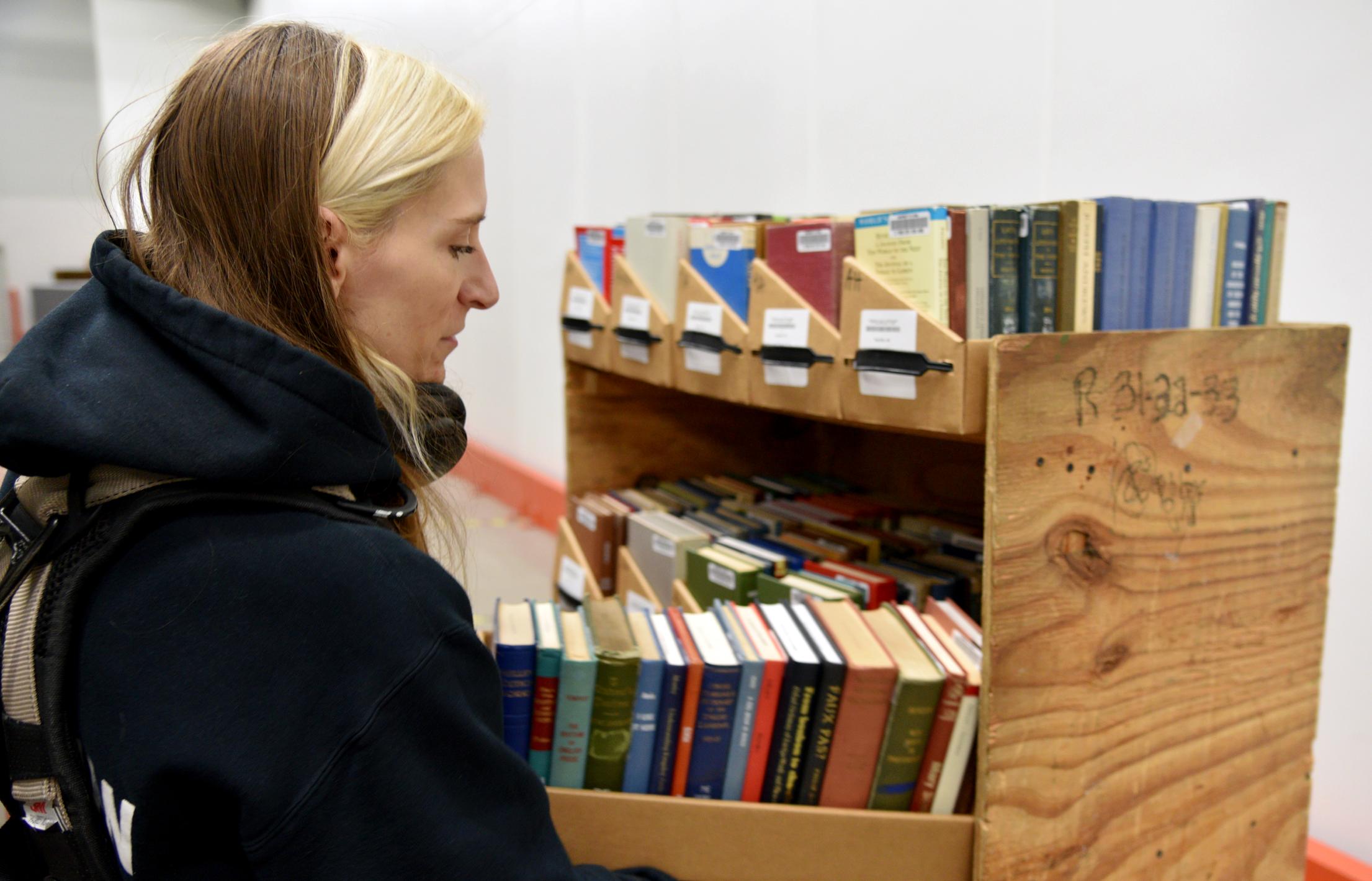
information they’re seeking in order to target the right materials, which they then scan and share electronically. The UI Libraries Annex team is able to provide these high-quality scans within a “pretty rapid” time frame, according to Halterman-Dess.
“There might be an assumption that if it’s not on-shelf at one of the campus libraries, there will be a lot of hassle from the user’s point of view to put in a request and receive it, but it’s really pretty slick,” says Halterman-Dess.
Physical items take longer to receive because they must be checked out and delivered, but this process, too, has been streamlined. Before the pandemic, the Annex restricted the delivery of items to campus addresses or locations farther than 25 miles from Iowa City. In 2020, the pandemic called for a reevaluation of that policy. The delivery radius was extended to include Iowa City and surrounding communities, regardless of proximity to the UI campus, allowing borrowers to receive materials at home. This option remains in effect. Items belonging to Special Collections and Archives and vinyl records from the Rita Benton Music Library can also be requested through the Aeon system, though they can’t be checked out.
Iowa, making materials from the Annex available for borrowers from any of the three institutions.
So much of the work that goes into maintaining an efficient library system is accomplished quietly, behind the scenes—and in this case, at an off-site location. Halterman-Dess and Hoberg happened upon this area of librarianship by coincidence, but they both expressed gratitude for the paths their careers have taken. Hoberg describes it as “satisfying and meaningful” work. Halterman-Dess agrees.
The UI Libraries Annex is a vital resource, and its collection has room to grow. Other Iowa institutions have taken notice. Negotiations are in the works to collaborate with Iowa State University and the University of Northern
“As I often say, I’m pretty sure nobody plans to go into library storage work. There’s almost certainly no coursework that’s tailored directly to it,” says Halterman-Dess. But, she added, that’s part of what makes it so rewarding. “It’s very fulfilling to be able to work with so many other Libraries staff across the many departments and branches. I feel like we really manage to harness our efforts and synergize very well.”
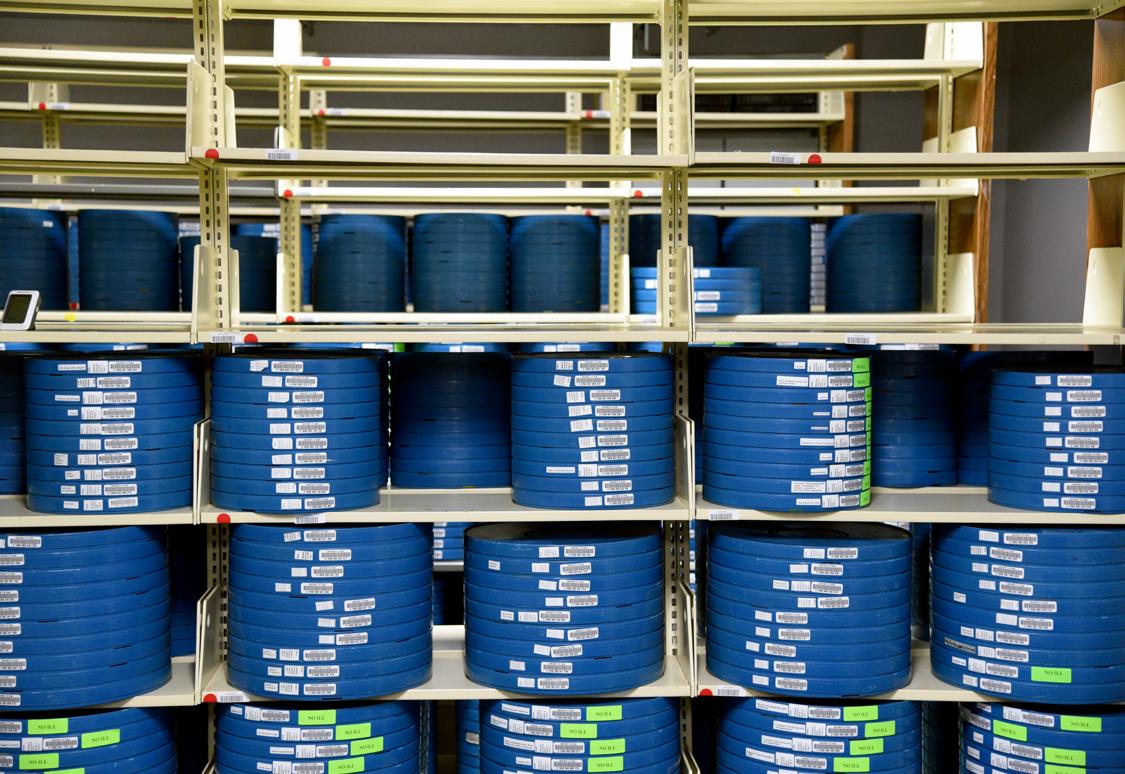
“I think the scale of what we do out here surprises people,” says Hoberg. “Even after the day-to-day tasks are done, we’re never without stuff to do.”Some items, like these reels, require storage at lower temperatures and are placed in a cold storage room. BY SARA J. PINKHAM, EXHIBITION & ENGAGEMENT COORDINATOR, MAIN LIBRARY GALLERY
When Madde Hoberg first envisioned an exhibition for the Main Library Gallery, she saw the potential for a space filled with local queer history, joy, resistance, and creativity. Three years after her initial exhibit proposal, Out & About: Queer Life in Iowa City was realized. The exhibition was open to the public through the spring 2023 semester.
“With this exhibit, we invited everyone to explore some of the diverse and complex history of LGBTQ life through an Iowa City lens,” says Hoberg, library annex assistant for the University of Iowa Libraries. “The exhibit started with the foundation of the Gay Liberation Front on the University of Iowa campus in 1970—itself a response to
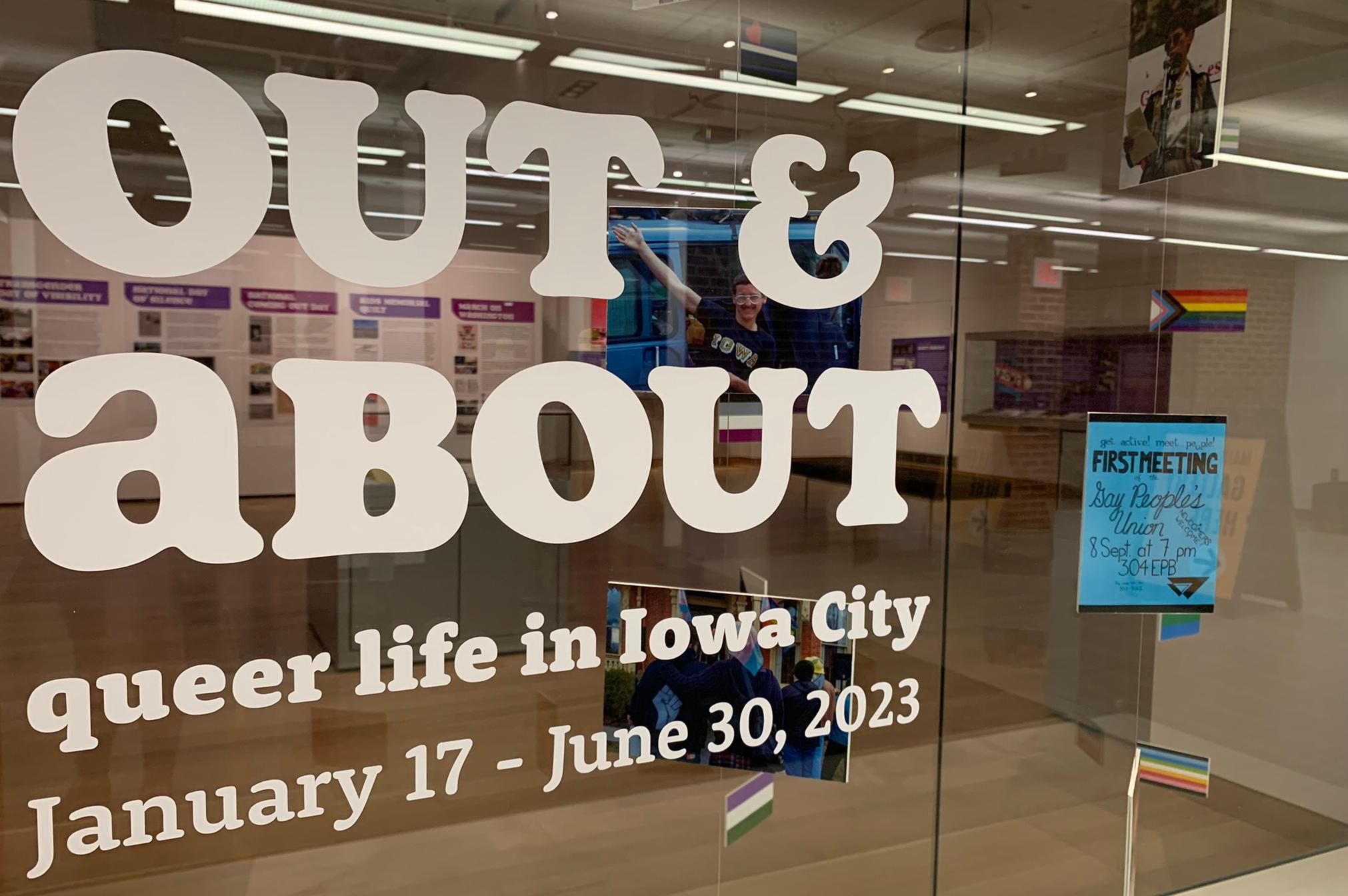
the Stonewall Riots in New York City—and illustrated the evolution of LGBTQ rights, advocacy, community needs, and queer joy through the present day.”
The exhibition recounted stories from the recent past about queer student groups, Iowa City businesses and organizations, and publications by showing a variety of documents, photos, artifacts, and ephemera from local archives. Items in the exhibition were selected from materials available in the University Archives, the Iowa Women’s Archives, and Special Collections and Archives at the UI Libraries as well as from the LGBTQ

Iowa Archives & Library (LIAL), a community organization in Iowa City.
Hoberg was also able to procure a few objects, stories, and statements for display directly from community members. “I am beyond grateful for the people who trusted us with their personal artifacts, their histories, their voices. They enriched the exhibit and made it more ‘real,’” she said.
From curation to conservation, design, installation, project management, and more, behind-the-scenes contributors to exhibit production are plentiful. “I think the most surprising part of creating an exhibit was the
continued on page 38
continued from page 39
number of people who are involved,” says Hoberg, who served in a curatorial role for the first time with Out & About. “There are so many moving parts.”
One of the people Hoberg worked with was former colleague Aiden Bettine, who is now curator of the Tretter Collection in GLBT Studies at the University of Minnesota Libraries. He helped Hoberg make selections of physical items from the several collections available.

Working on this exhibition was important to Hoberg from a professional perspective as a librarian interested in archives work, but also on a personal level.
“To me and my spouse, the Iowa City queer community is our family," says Hoberg. "Seeing the friendly face of someone who knows and accepts you as your truest and fullest self is an indescribable experience. Everyone deserves that type of love and community support. There are places at the University of Iowa and in Iowa City where you can find safety, support, and validation. We see you. We hear you. We value you. We want you here. You are so important to our history and our future.”
One impactful experience for Hoberg while preparing for the exhibit was shelving Steven Allen Carson’s papers [RG02.0009.051], which are now available for research. Many of the materials provide his unique perspective on the emergence and growth of Iowa City’s gay community between the 1960s and 2000s.
“Viewing the slides from Steven’s photograph boxes was an incredible and moving experience,” says Hoberg. “Looking at the full slide sheets really gave me a sense of what Steven thought was beautiful and important, what caught his attention. It showed the complexity of his life as a gay man in Iowa City while also celebrating the simplest of pleasures.”
For more info...
Throughout the course of the exhibit, visitors had the opportunity to share their own stories about queer life in Iowa City to help grow the collection of LGBTQ voices in the University Archives.
BROWSE images and the a exhibition guide at the gallery's website TAKE a 360-degree tour
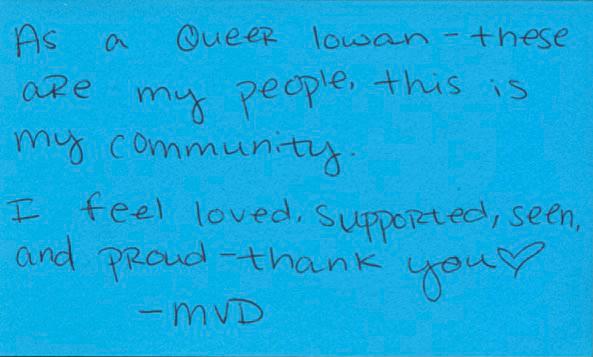
(L-R) Lynette Marshall, president and chief executive officer of the UI Center for Advancement; Jean Lloyd-Jones; Ann Howard Jones; and Barbara Wilson, UI president, take time together during the Eight Over 80 Awards celebration.
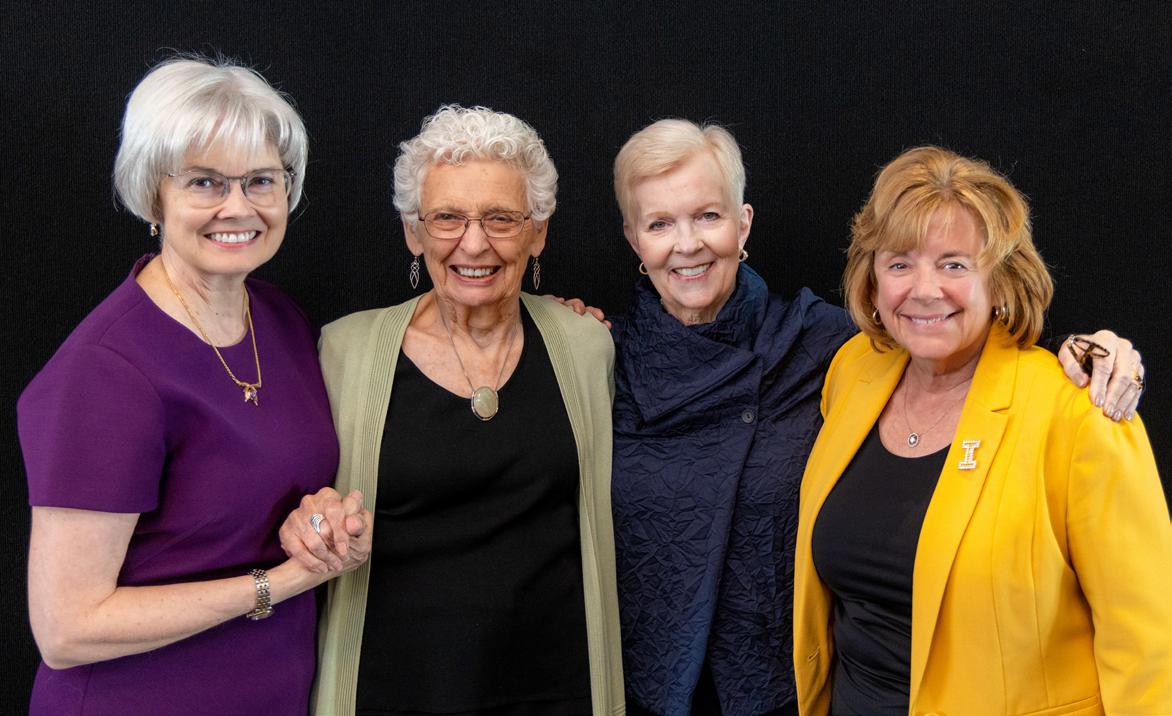
Congratulations to Ann Howard Jones and Jean Lloyd-Jones, who were both honored with the university’s Eight Over 80 Awards. The Libraries is excited to celebrate each of them as well as extend gratitude for their generous spirit!
The award recognizes alumni who have made an impact and continue to do so.
Distinguished choral and orchestral conductor and educator Ann Howard Jones (64BM, 66MA, 84DMA) has donated her lifetime of scores, books, and notes to the UI’s Rita Benton Music Library for others to enjoy and learn from and has provided funds to the UI School of Music to support an additional research assistant.
Iowa State Representative, Senator, and founder of the Iowa Peace Institute, Jean Lloyd-Jones (71MA) has worked to increase the number of women involved in politics in the state by helping to make the history of Iowa women in politics more accessible to the public, including through a gift to the Iowa Women's Archives at the University of Iowa Libraries.
VISIT the University of Iowa Center for Advancement's website.
Bill Sackter, originally from Minneapolis, Minnesota, was separated from his family and sent to the old Faribault State School and Hospital when he was seven years old. Diagnosed with an intellectual disability, Sackter spent 44 years there as an inmate. He came to Iowa City in the early 1970s with Barry and Bev Morrow, a couple he had met in Minneapolis after his release from Faribault. Barry Morrow had been offered a job at the University of Iowa School of Social Work and Sackter, beloved by the Morrow family, came along.
Sackter quickly became a friend to everyone he met in Iowa City. “If you ain't got a buddy, what do you got?” was one of his key philosophies. Despite everything he had endured before meeting the Morrows, Sackter’s goals in life were to bring joy to others and to be happy. “When I could make people happy, it made me happy,” he once said.
Tom Walz, director of the UI School of Social Work at the time (1973-78), hired Sackter as a
staff member. Eventually, he became locally famous for his role as the proprietor of Wild Bill’s Coffee Shop in North Hall. He was also well-known for his talent on the harmonica and his kindness to children.
Sackter inspired Barry Morrow to write a screenplay about his life, Bill, which was produced as a television movie in 1981 starring Mickey Rooney. The Emmy- and Golden Globe-winning film catapulted Sackter into the national spotlight, making him an even stronger advocate for people with intellectual disabilities. A sequel film, Bill: On His Own, aired in 1983. In the foreword to Walz’s 1998 book The Unlikely Celebrity, Morrow credits Sackter with being the “catalyst of at least one career. I didn’t plan to become a screenwriter. I just met Bill Sackter.”
The exhibit will be co-curated by Jen Knights, marketing and communications manager for Performing Arts at Iowa in the the College of Liberal Arts and Sciences; and
“We hope to teach a new generation of people about Sackter’s story,” says Knights, who previously worked in the UI School of Social Work. “Not only as an important part of the history of the University of Iowa, but also as a demonstration of the power of writing and storytelling and how stories can shift perspectives, expand understanding and empathy, and truly make a difference on a large scale. We have this treasure trove of artifacts and writings and photos that need to be kept safe so that Bill—and all of his buddies—will not be forgotten.”
“It is important to tell his story again,” says Ferrier. “There are fewer and fewer people
who know the name Bill Sackter. This exhibit will hopefully introduce, or reintroduce, Bill to a community that he had a tremendous influence on.”

Items on display in the exhibit are from Special Collections and Archives, the School of Social Work, and from friends of Bill Sackter, including Barry and Bev Morrow. From photos and letters to Bill’s signature overalls and Morrow’s Emmy, the exhibit contains a wide variety of artifacts and ephemera.
Hey Buddy, I’m Bill will be on display in the Main Library Gallery through Dec. 19, 2023. A virtual version of the exhibit will be available later in fall 2023. VISIT
Last year, Special Collections and Archives at the University of Iowa Libraries acquired items to form a new collection: the Black Film and Television Collection. Take a look at two of these items, which focus on the origins of Black filmmaking.
First, we looked at one of the collection’s earliest (and rarest) items: the original poster for the lost 1919 race film The Green-Eyed Monster.

During the era of segregation, Black audiences were already barred from most movie showings, and there were only a few movie houses open specifically for Black viewers. But there was a demand for what came to be called “race films,” and about 500 movies were released to meet it.
The Green-Eyed Monster was produced by Norman Studios in Jacksonville, Florida. The studio that produced it was owned by a white filmmaker, Richard E. Norman, who sought to cater to an untapped audience. While this poster and the film it advertises represent a form of progress, the most impactful works in the genre of race film were produced by Black filmmakers at Black-owned studios.
In the early years of cinema, the industry wasn’t centralized in Los Angeles the way it is today, and production companies could be found in cities across the country. One such studio was Lincoln Motion Picture Company, which began in Lincoln, Nebraska, in 1916 and lasted until 1921.
The same segregation policies that kept audiences separate made it especially difficult for a
production company aimed at a Black audience to maintain its bottom line. But by the time the studio that originated race films closed, another Black filmmaker had found his calling in film.
Oscar Micheaux’s Chicago studio, Micheaux Film Corporation, was one such company. Throughout his decades-long career, Micheaux produced 40 films. His features showed Black audiences a world they recognized: a place of struggle and striving, where racism was a constant reality.
Anything but Silent: Lobby Card for Swing
This is a lobby card from Oscar Micheaux’s 1938 film Swing, part of the Black Film and Television Collection. Starring Cora Green, Swing is notable as an example of two overlapping genres: race film and musical film.

Like many of Micheaux’s films, Swing is a tale centered around Black characters with grand aspirations. The movie follows Eloise Jackson (Hazel Diaz) and Mandy Jenkins (Green), two young women from Birmingham, Alabama. Mandy catches her husband (Larry Seymour) having an affair with Eloise, and Eloise flees to start over as a singer in Harlem.
Who was Oscar Micheaux?
By the time Swing was released, Micheaux had made nearly 40 movies, both silent films and “talkies.” His contributions had defined the art of the race film and brought the experiences of Black Americans to the screen.
In recent years, Micheaux’s contributions to film history have received more attention. The Academy Museum of Motion Pictures in Los Angeles features an exhibit on Micheaux’s work, and in 2010 the U.S. Postal Service released a stamp in his honor.
Since Swing was a musical film, it also gave Cora Green a new opportunity to showcase the singing voice that had already made her a star. Green performs two of Swing’s four musical numbers, “Bei Mir Bist di Schön” and “Heaven Help This Heart of Mine.”
Green left behind a limited but unique body of work, and this lobby card is a small piece of her story. In Swing, her voice carries to us through the years, the sound of a new art form just hitting its stride.
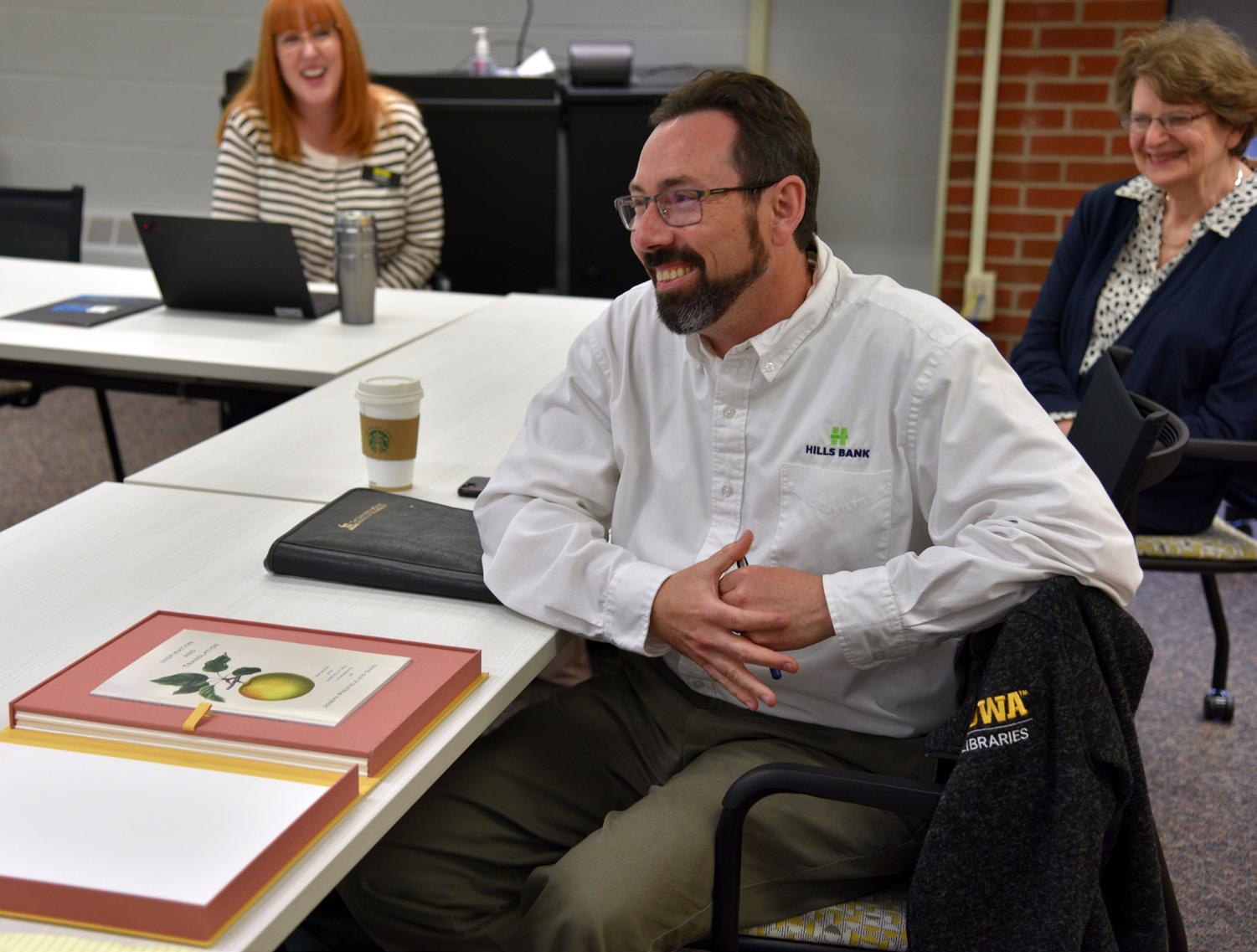
From the deep connections he’s forged as a student at the University of Iowa and working in the local community to his family’s longstanding ties to the Amana Colonies, Aaron Schaefer knows that having a strong foundation is crucial to being successful both personally and professionally. It’s one of the reasons he decided to become a member of the UI Libraries Advancement Council (LAC).
Schaefer recently completed his one-year term as chair of the LAC, which actively champions the Libraries and provides guidance and feedback to help the UI Center for Advancement’s effort to increase support through fundraising, advocacy, and engagement. The group gathered on campus and virtually for hybrid meetings in November 2022 and April 2023. According to Schaefer, it’s been a privilege to work with members of the LAC and Libraries team members.
“My time as chair as well as my entire time on the Council has opened my eyes to the many ways the Libraries engage with students and faculty and what a vital resource it is not only to campus but also to the larger community and beyond,” says Schaefer.
And the resources provided by the Libraries are also something he experienced firsthand while earning a Bachelor of Business Administration and Master of Business Administration
from Iowa. Schaefer is currently serving as the senior vice president, investment officer lead, trust and wealth management at Hills Bank and Trust Company in North Liberty, Iowa—and he, his wife, Shana, and two boys, August and Orson, recently renovated and moved into his grandparents’ home in Amana, Iowa. Schaefer’s family has deep roots in the area dating back to the late 1800s, and he knows that learning from and celebrating the past and present, while looking towards the future, is an important component for success at any stage in life.
“The UI Libraries is place to connect and create with fellow students and colleagues. It’s also a place where one can learn about the untold stories of the university and the state of Iowa that are so critical to understanding who we are and where we came from and how much we have grown as a community,” says Schaefer. “I think it is important to support the Libraries because the resources it provides has the
power to light a fire in a student or researcher. Our support is the tinder for that fire. We don’t want it to go out.”
Jane Roth from Leesburg, Virginia, is now serving as chair and Christie Krugler, Milwaukee, Wisconsin, is vice-chair. Schaefer will continue as member of the LAC and says he’s looking forward to continuing to help the group advocate for the Libraries.
The Council’s next meeting is scheduled for November 2023. Current members include Virginia Eichacker, Las Vegas, Nevada; LeAnn Lemberger, Ottumwa, Iowa; Krugler; Roth; and Schaefer.
The Council thanks Susan Annett, Timothy Benson, Sandra Reuben, and Griffin Sweeney for their service as members of the LAC. The four have completed their terms and become emeritus members of the group, who are available to provide counsel to the group as needed.
The LAC unveiled that Inspiration and Translation—Botanical and Horticultural Lithographs of Joseph Prestele and Sons was purchased for Special Collections in honor of Schaefer’s service as chair of the LAC. It features several lithographs bound in a custom box created by University Conservator Giselle Simón.
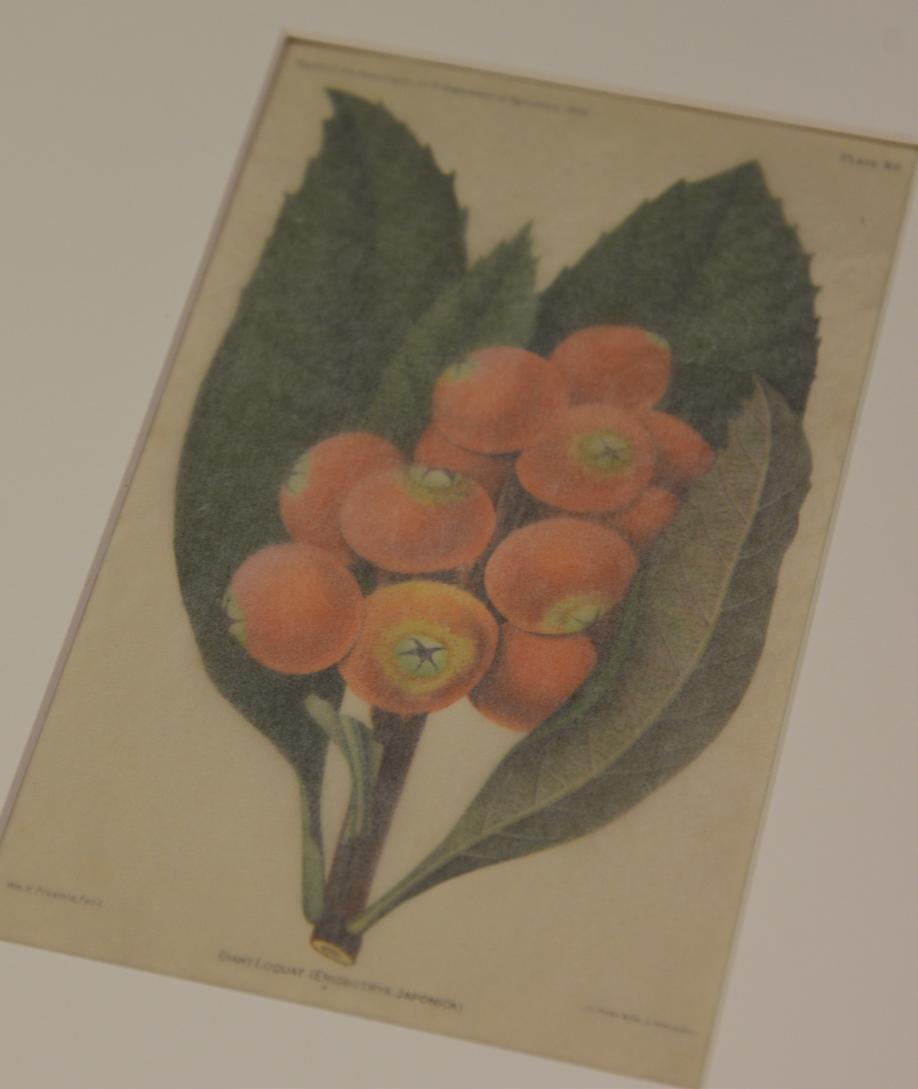
Curator of Rare Books and Maps Eric Ensley explained to Schaefer and the LAC that Joseph and his son William Henry Prestele are renowned lithographers and some of the best-known documentarians of American plant life. Joseph immigrated to the Amanas from Germany where he set up his business. William Henry went on to do a very influential series of lithographs for the USDA in the late 19th century. “It was an incredibly thoughtful gift,” says Schaefer. “There is very little more important to me than my connection to the Amana Colonies and to be honored with lithographs that are connected to the history of that community was amazing.”
The lithographs were purchased by the Friends of the University of Iowa Libraries.
 BY PAULA WILEY
BY PAULA WILEY
WHEN I LOOK BACK AT MY FIRST YEAR with the University of Iowa Libraries as the associate director of development for the UI Center for Advancement, I’m reminded of the adage John Culshaw shared with me early on: “People are our greatest resource.” Each day since has underscored the truth of that statement. We’re so lucky to have a dedicated team that works hard to serve library users throughout the university, Iowa City, and beyond.
We are also fortunate to have an ever-expanding base of passionate supporters—among them former staff and student employees, alumni, parents, and friends. Without our “people,” the UI Libraries wouldn’t be able to offer the educational enrichment, world-class resources, and community support that set us apart. Thank you to everyone who gives to our libraries, whether you give in the form of time and talent, philanthropic support, or (as so many of you have) both.
I also want to express my gratitude to Katharine Lasansky, whose dedication and generosity eased my transition into this role. Even after taking on a new position at the University of Iowa Center for Advancement, Katharine offered crucial guidance as I began my journey here. Thank you, Katharine, for all your contributions to our libraries.
We’re keeping the momentum. Stay tuned for more information about an exciting project this fall.
If you have any questions or would like to know more about how you can support the UI Libraries, please feel free to reach out to me at paula.wiley@foriowa.org.
contact us
For more information about how to become involved as a Friend of the University of Iowa Libraries, please contact Paula Wiley (paula.wiley@foriowa.org or (800) 648-6973.

BINDINGS is the University of Iowa Libraries’ magazine, published annually to highlight the efforts of its librarians who work to support the successes of students, faculty, staff, and community members.
John Culshaw
Jack B. King University Librarian john-culshaw@uiowa.edu
Paul Soderdahl Associate University Librarian paul-soderdahl@uiowa.edu
Katie Buehner Interim Associate University Librarian and Director, Rita Benton Music Library katie-buehner@uiowa.edu
Anne Bassett
Senior Director of Strategic Communications and External Relations
Kalmia Strong Creative Coordinator and Designer Natalee Dawson Communications Coordinator
Elizabeth Riordan Lead Outreach and Instruction Librarian
Sara J. Pinkham Exhibitions and Engagement Coordinator
To celebrate the advent of spring 2023, the University of Iowa Libraries’ social media channels emphasized the earth-related offerings at the Sciences Library, including the Kent Ornithology Collection. These 250+ titles were donated by former UI faculty member and birding enthusiast Dr. Thomas H. Kent.
The Sciences Library also boasts a robust collection of U.S. geological surveys (and a digital guide to navigate these documents). With a central location, three floors of study space, a specialized scanner, and a friendly and knowledgeable staff, the Sciences Library is worth a visit.
Paula Wiley Associate Director of Development, Libraries paula.wiley@foriowa.org
The University of Iowa prohibits discrimination in employment, educational programs, and activities on the basis of race, creed, color, religion, national origin, age, sex, pregnancy, disability, genetic information, status as a U.S. veteran, service in the U.S. military, sexual orientation, gender identity, associational preferences, or any other classification that deprives the person of consideration as an individual. The university also affirms its commitment to providing equal opportunities and equal access to university facilities. For additional information on nondiscrimination policies, contact the Director, Office of Equal Opportunity and Diversity, the University of Iowa, 202 Jessup Hall, Iowa City, IA, 52242-1316, 319-335-0705 (voice), 319-335-0697 (TDD), diversity@uiowa.edu.
Washington
Gallery
August 21 - December 19, 2023
The fall 2023 Main Library Gallery exhibition, Hey Buddy, I'm Bill, shares the story of Bill Sackter, an advocate for people with intellectual disabilities who was beloved in Iowa City and beyond.
See page 42 for details
Exhibitions in the Main Library Gallery are open to all and free of charge. Location, hours, and exhibition information at lib.uiowa.edu/gallery
for helping to boost our students’ success through the UI Libraries!